Bonn Climate Change Conference - June 2019
17-27 June 2019 | Bonn, Germany
Summary Highlights: 17-27 June 2019
Highlights for Thursday, 27 June 2019
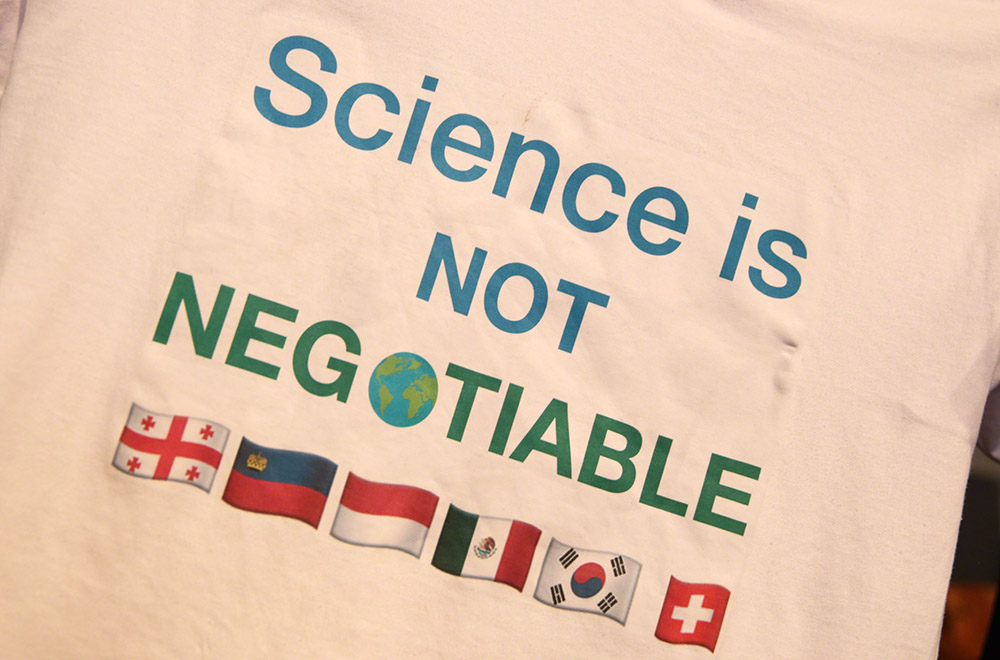
 The last day of the Bonn Climate Change Conference started slow, to allow parties to work through difficult issues, and ended smoothly, as parties adopted the outcomes of the meetings.
The last day of the Bonn Climate Change Conference started slow, to allow parties to work through difficult issues, and ended smoothly, as parties adopted the outcomes of the meetings.
In a much-awaited decision on the Special Report on 1.5°C of Global Warming (SR1.5), the SBSTA “expressed its appreciation and gratitude to the IPCC and the scientific community for responding to the invitation of the Conference of the Parties (COP) and providing the SR1.5, which reflects the best available science.” The decision reflected a razor-thin compromise between the many parties who wanted to celebrate the scientific achievements of the report and the few who expressed concerns with the report.
Groups of developing countries that are vulnerable to climate change defended the Intergovernmental Panel on Climate Change's (IPCC) SR1.5, saying “listening to science not a choice, but a duty.” Wearing t-shirts that exemplify their message, the Environmental Integrity Group, declared “Science is not negotiable.”
Parties agreed to several outcomes, including:
- Koronivia Joint Work on Agriculture: New Zealand will host an intersessional workshop on sustainable land and water management, and strategies and modalities to scale up practices and technologies to increase resilience and sustainable production;
- The terms of reference for the review of the Warsaw International Mechanism on Loss and Damage associated with climate change impacts was adopted. This sets out the scope of the review of the WIM to take place at the Santiago Climate Change Conference in December 2019.
- Nairobi Work Programme: The Programme will prioritize thematic areas in its work on adaptation and vulnerability to climate change, namely: extreme weather events, drought, forests and grasslands, oceans, and agriculture and food security.
- Article 6 (markets and non-market approaches): Countries brought together their work from Katowice to forge a path forward. They agreed to proceed on the basis of texts put together by the Co-Facilitators. As decision looms in Santiago, countries will arrive with an agreed basis for negotiations.
The meeting was gavelled to a close at 10:07 pm.
The next meeting of the UN Framework Convention on Climate Change (UNFCCC) is in December in Santiago, Chile.
IISD Reporting Services, through its ENB Meeting Coverage, provided daily web coverage, daily reports, and a summary and analysis report from the Bonn Climate Change Conference - June 2019, which is now available in HTML and PDF.
Photos by IISD/ENB | Kiara Worth
For photo reprint permissions, please follow instructions at our Attribution Regulations for Meeting Photo Usage Page
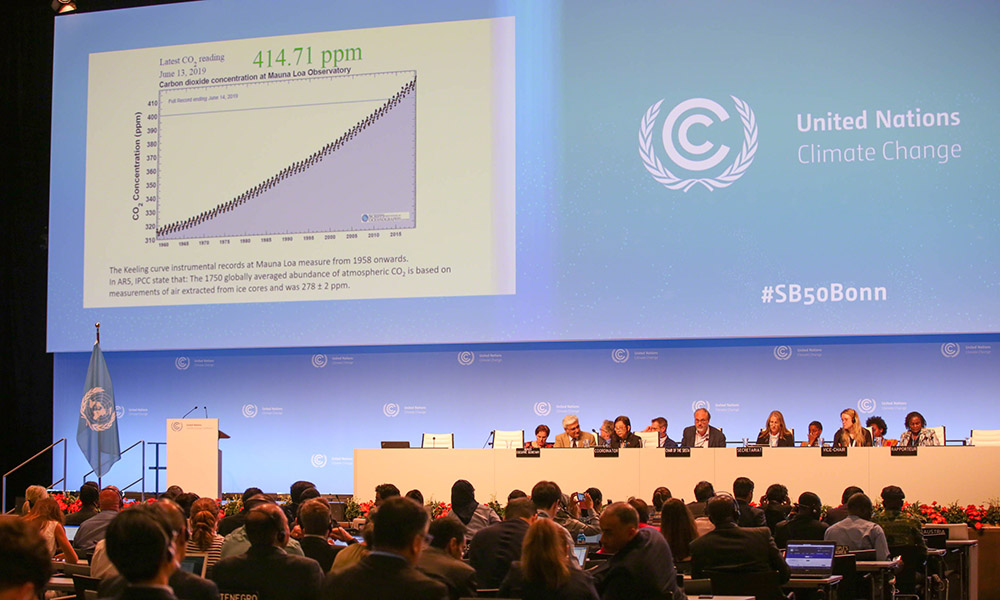
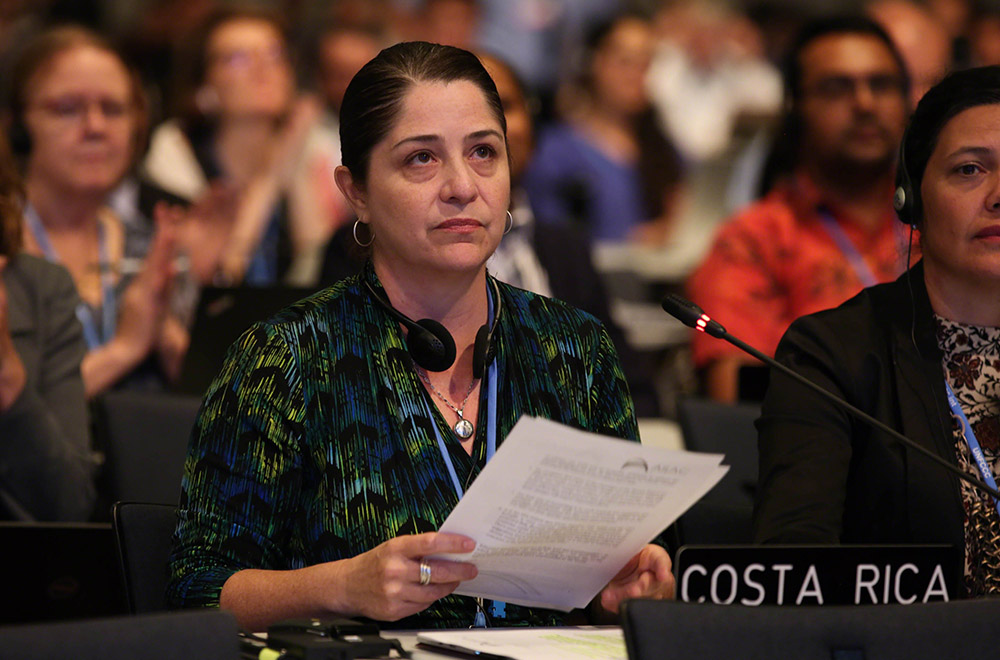
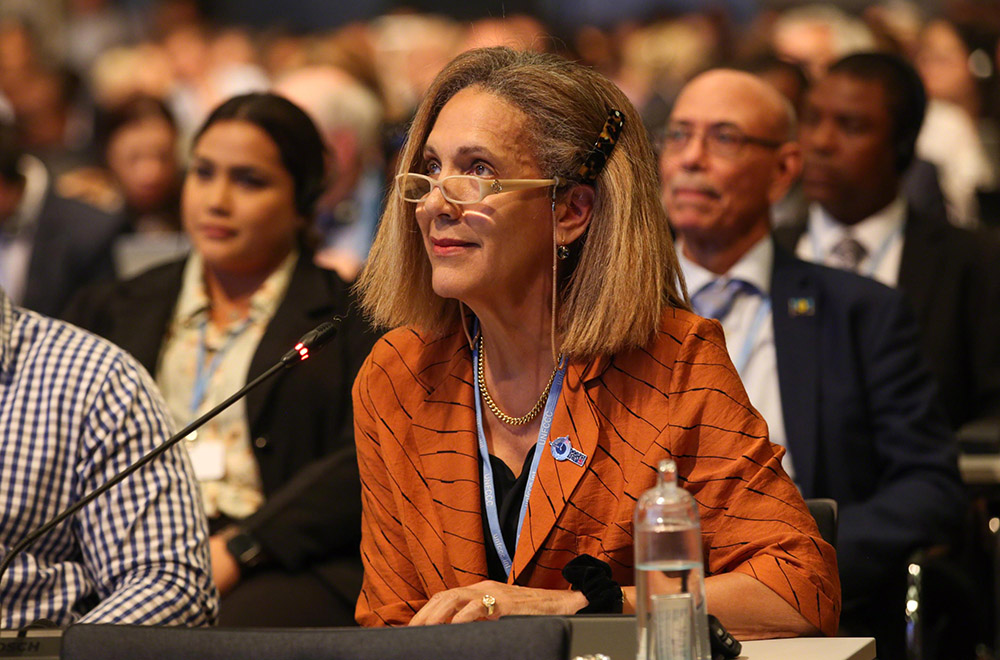
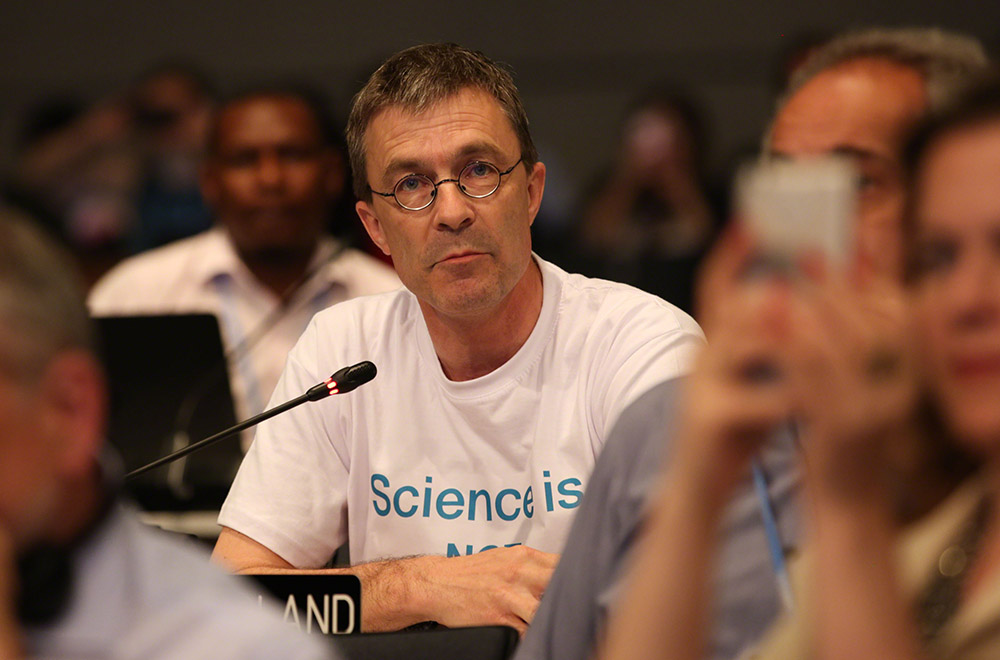
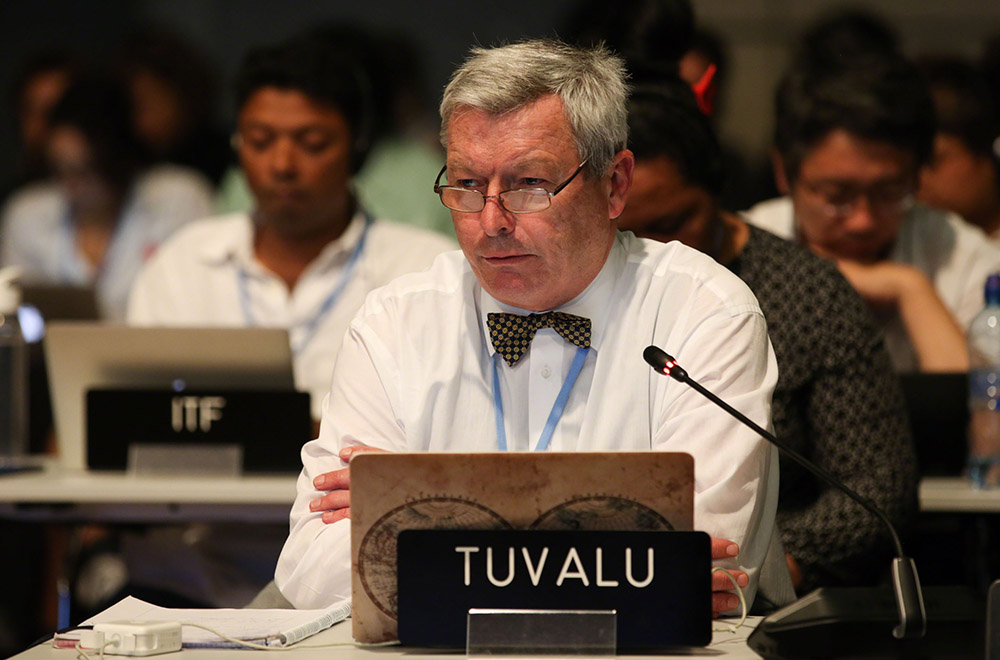
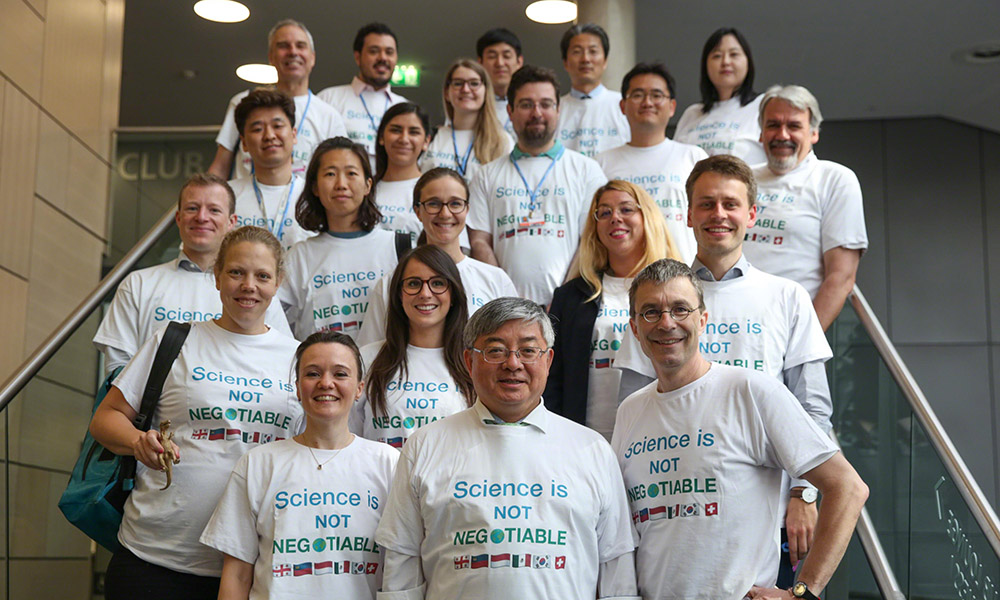
Highlights for Wednesday, 26 June 2019
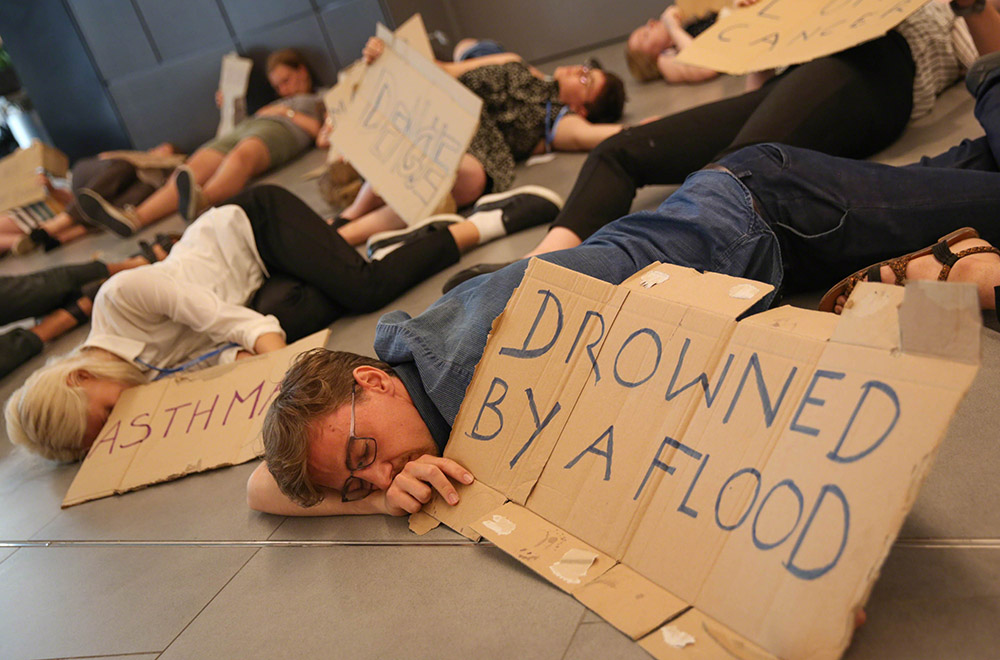
On the penultimate day of the Bonn Climate Change Conference, much remained unresolved. Huddles and high-level engagement became the modus operandis of the day.
Parties continued to discuss issues, from the Intergovernmental Panel on Climate Change (IPCC) Special Report on 1.5°C to the budget, with limited progress. Discussions on the reporting formats that will operationalize the enhanced transparency framework under the Paris Agreement moved along in closed-door sessions. The Chair of the Subsidiary Body for Scientific and Technological Advice (SBSTA) held a two-hour meeting with the heads of delegations to try to work out remaining issues before the closing plenaries tomorrow. Similarly, the budget inched toward agreement as time started to run out.
While delegates worked on brackets and re-worked text on the screen, other participants engaged in action-oriented exchanges to share lessons and catalyze new actions. A special event titled “Driving Change Together-Special Joint Event on Multilevel Action” focused on e-mobility and adaptation. The Thematic Expert Meeting on Adaptation wrapped up today, with participants continuing to grapple with the question of how to engage the private sector in building resilience to the effects of climate change while safeguarding local communities.
A third special event, new for the UNFCCC and convened by the Paris Committee for Capacity-building and the Office of the United Nations High Commissioner for Human Rights (OCHCR), focused on the implications of climate change for the full enjoyment of human rights.
Looking ahead to the Santiago Climate Change Conference, several participants worried that the COP may become bogged down in the technical details of the issues discussed here, many of which reflect deep political divides. But some delegates noted that political guidance could help negotiators, and help build momentum on climate action before the Paris Agreement’s start date in 2020.
+ Visit the web coverage for Wednesday, 26 June 2019
+ Read the ENB report for Wednesday, 26 June 2019, in English (HTML or PDF format), or in Japanese (HTML or PDF format).
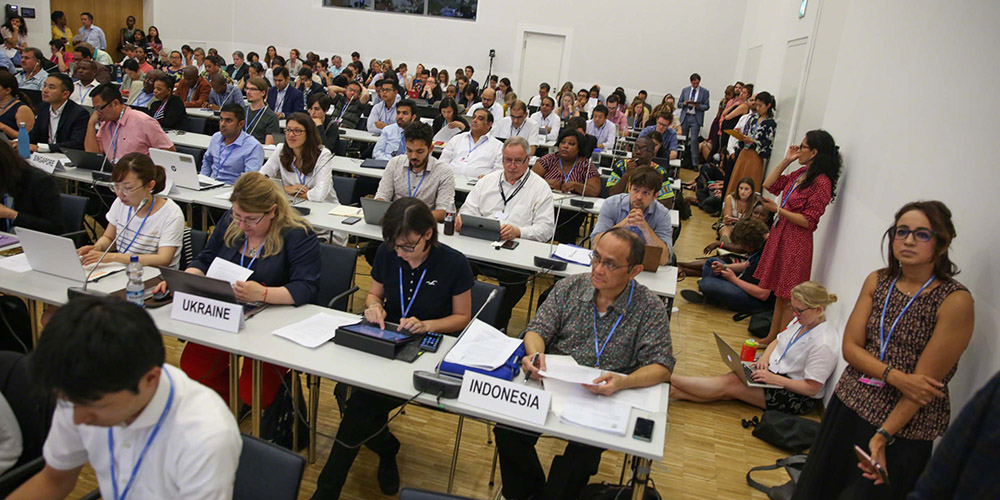
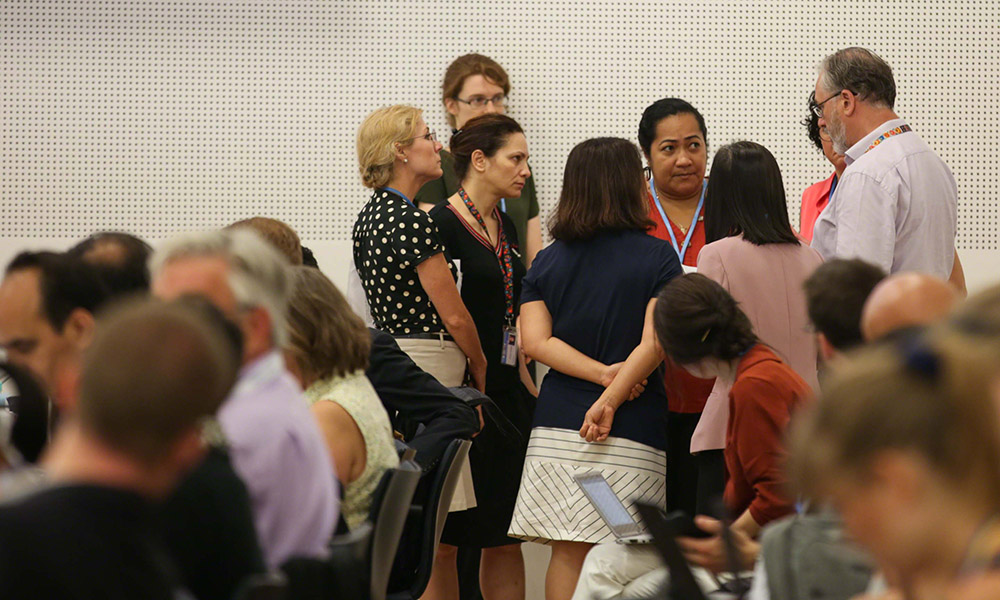
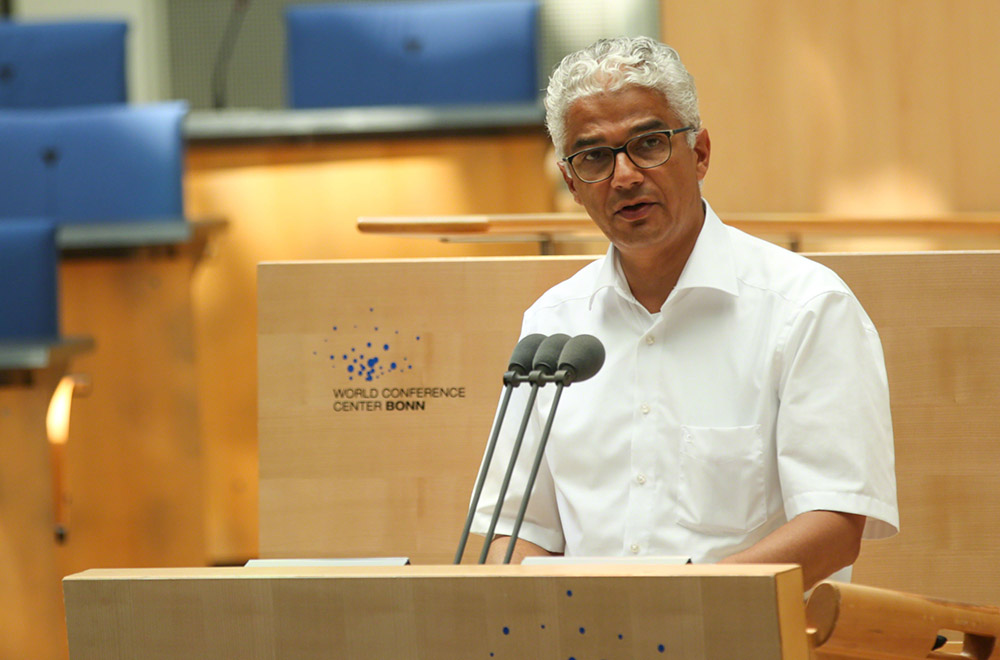
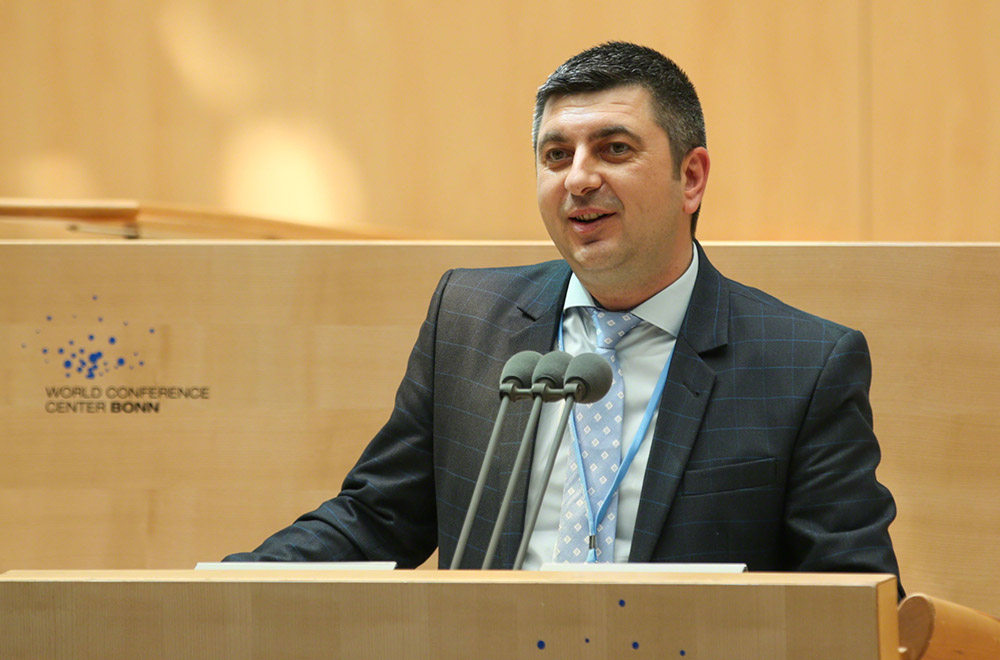
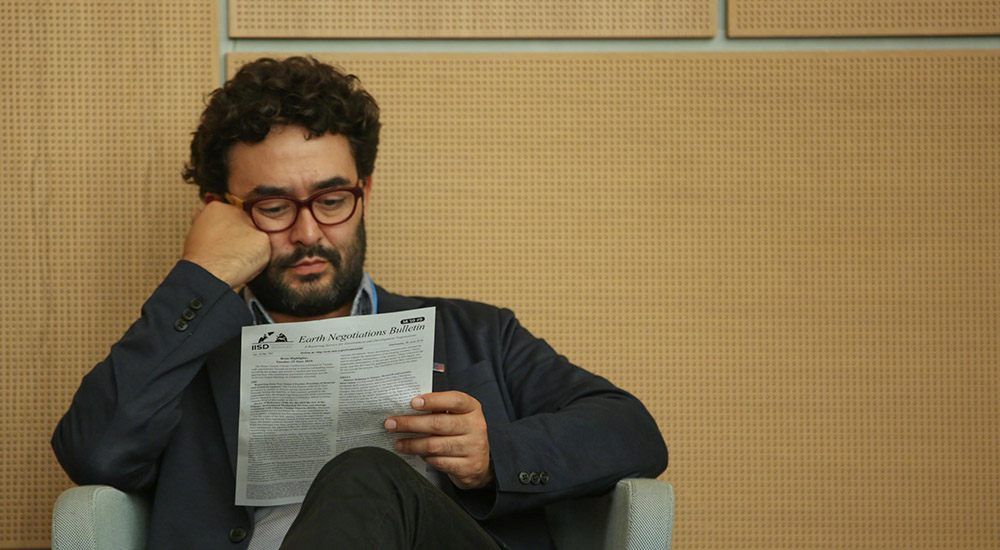
Highlights for Tuesday, 25 June 2019
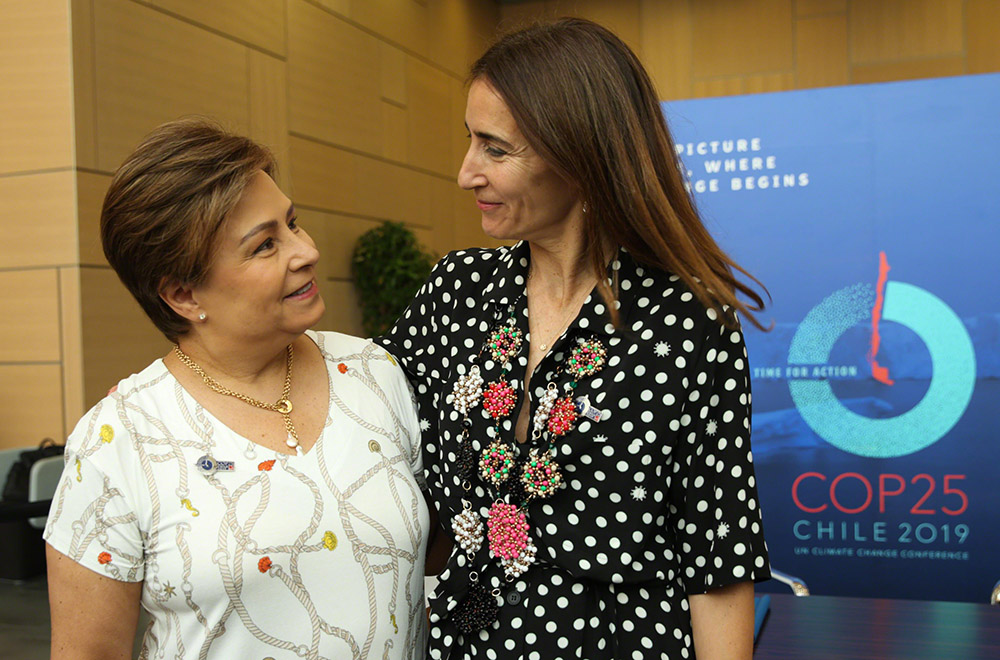
With two days left at the Bonn Climate Change Conference, and record temperatures outside the venue, delegates grappled with the most divisive issues, trying to reach agreement as the heat rose.
Parties agreed to a way forward on the periodic review of the long-term global goal, as well as some of the issues related to the Paris Agreement’s transparency framework. The discussions on emissions from aviation and maritime fuels ended with procedural conclusions, upholding a long-standing stalemate among parties on the agenda item.
Agreement remains elusive on several issues. So far, parties could not agree on how, or, indeed, whether, to capture outcomes for this session on several items, including:
- The Intergovernmental Panel on Climate Change (IPCC) Special Report on 1.5°C of Global Warming: parties could not agree to one party’s proposals regarding knowledge gaps related to the 1.5°C goal;
- The terms of reference for the review of the Warsaw International Mechanism for Loss and Damage Associated with Climate Change Impacts (WIM): parties could not agree on the scope of the review of the mechanism, among other debates;
- Arrangements for future intergovernmental meetings: Outstanding issues include the frequency of future meetings, and observer participation, including one group’s proposal for a conflict of interest policy; and
- Article 6: Many issues are outstanding on how to design market and non-market approaches under the Paris Agreement.
The budget raised worries for several delegates. While seemingly an administrative exercise, the budget provides the Secretariat with the means to act on the decisions taken. There were concerns that several parties’ demands to reduce the size of the budget conflicted with the need to implement the Katowice Climate Package, the rulebook of the Paris Agreement.
+ Visit the web coverage for Tuesday, 25 June 2019
+ Read the ENB report for Tuesday, 25 June 2019, in English (HTML or PDF format), or in Japanese (HTML or PDF format).
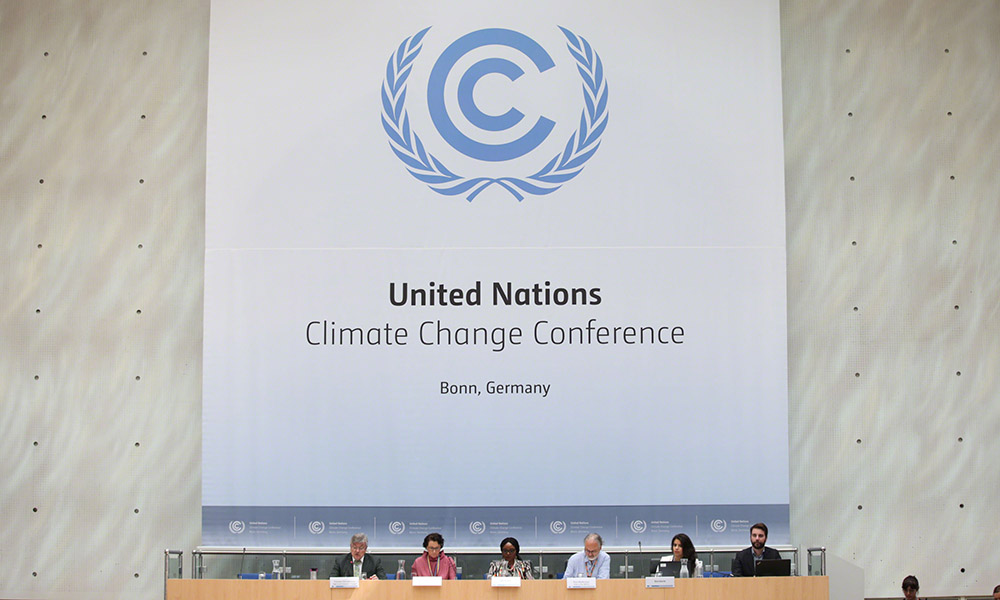
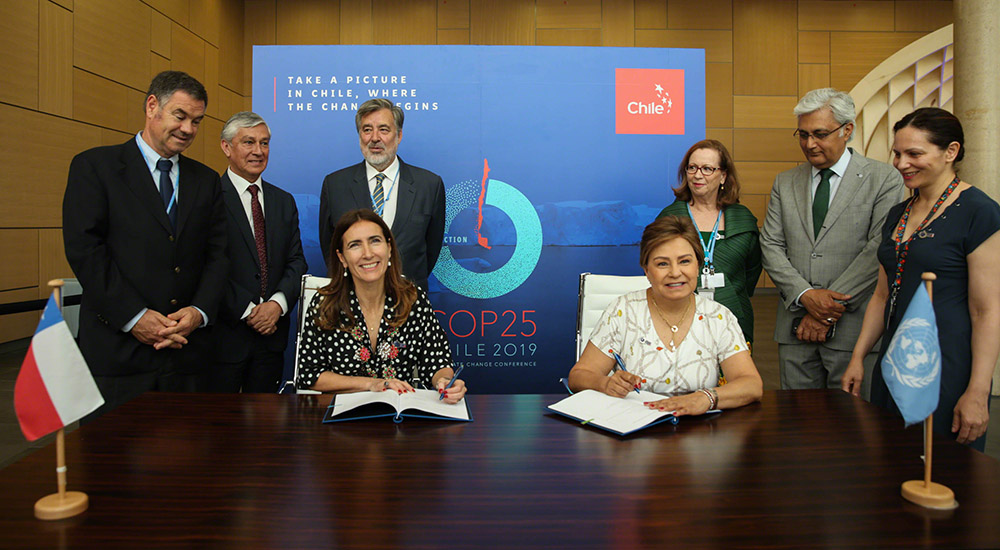
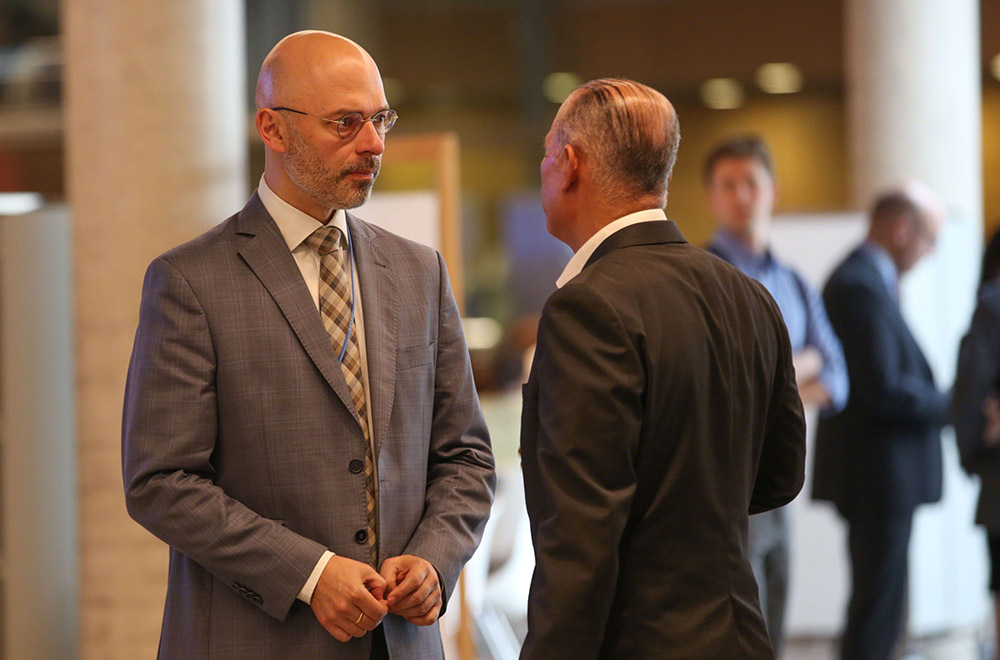
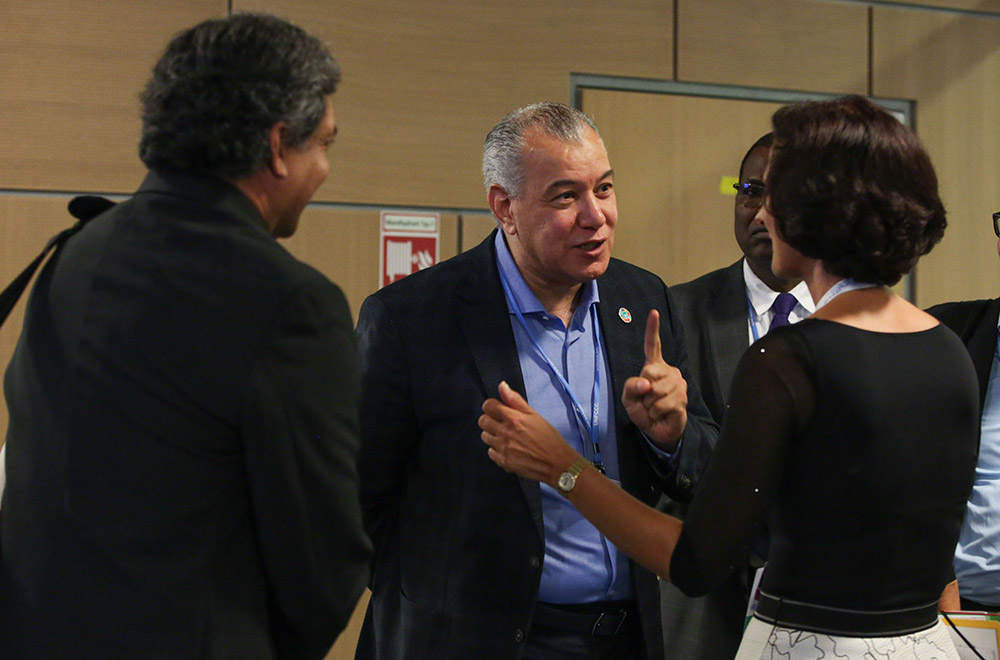
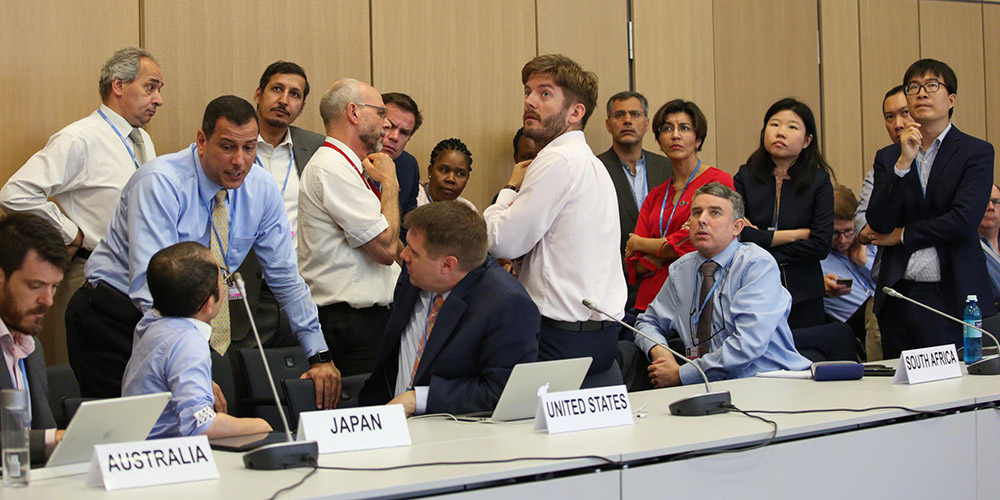
Highlights for Monday, 24 June 2019
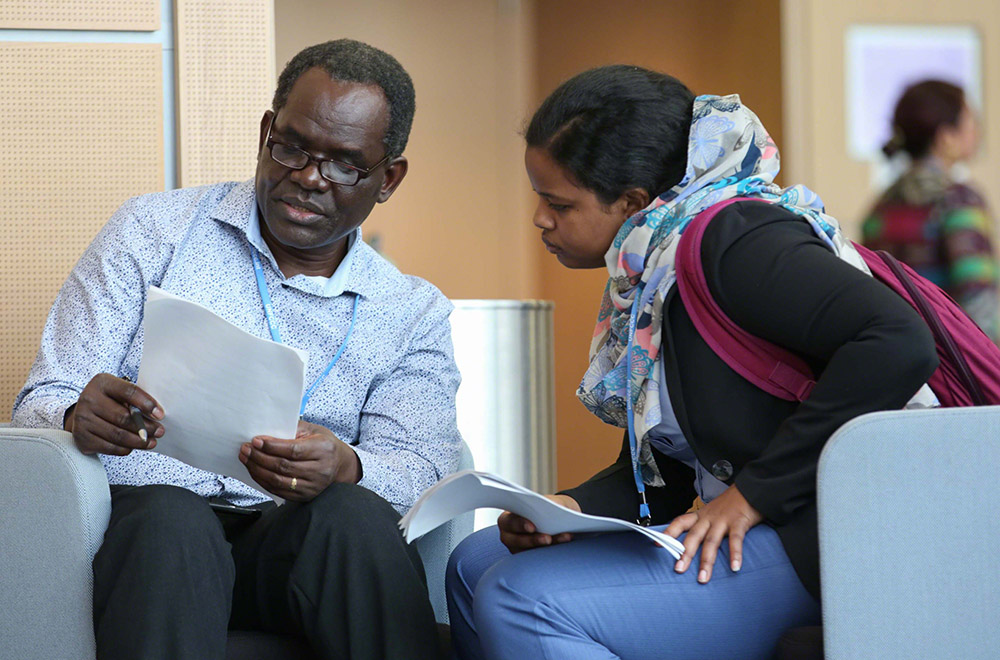
The Bonn Climate Change Conference began its second week of work, with delegates turning their attention to the outcomes of this session that would inform work at the next meeting in Santiago, Chile in December. On several issues, Co-Facilitators presented draft conclusions that would summarize the state of discussions on a given issue and, in some cases, set out intersessional work.
On other issues, such as agriculture, and methodological issues under the Paris Agreement, parties provided their views on what those conclusions should be. Agriculture delegates continued working in the afternoon in “informal informal informal” meetings to try to bridge the gap between views on how to take forward the work of the Koronivia Joint Work on Agriculture.
Looking further ahead, the 7th Action on Climate Empowerment (ACE) Dialogue delegates focused on how to enhance education, training, and public awareness and participation under the Paris Agreement. The participants rallied in breakout groups to discuss how past lessons and future priorities for policy, tools and support, non-party stakeholders, tracking progress and reporting, and international cooperation. Many left buoyed by the idea that, for people to act, they need to identify themselves in stories and to tell their stories.
The Long-term Finance Workshop also thought in transformational terms, drawing connections between climate finance, the Sustainable Development Goals (SDG), and the Addis Ababa Action Agenda on financing for development. Grappling with the complex calculations of needs and costs of achieving sustainable development and limiting global temperature rise to well below 2°C, many recognized that actions consistent with an energy transformation could either increase or reduce the costs of achieving the SDGs.
In the multilateral assessment, Australia, Croatia and Malta, Denmark, Finland, Iceland, Ireland, Italy, Japan, and Lichtenstein and Monaco presented information on their emissions, and national efforts.
+ Visit the web coverage for Monday, 24 June 2019
+ Read the ENB report for Monday, 24 June 2019, in English (HTML or PDF format), or in Japanese (HTML or PDF format).
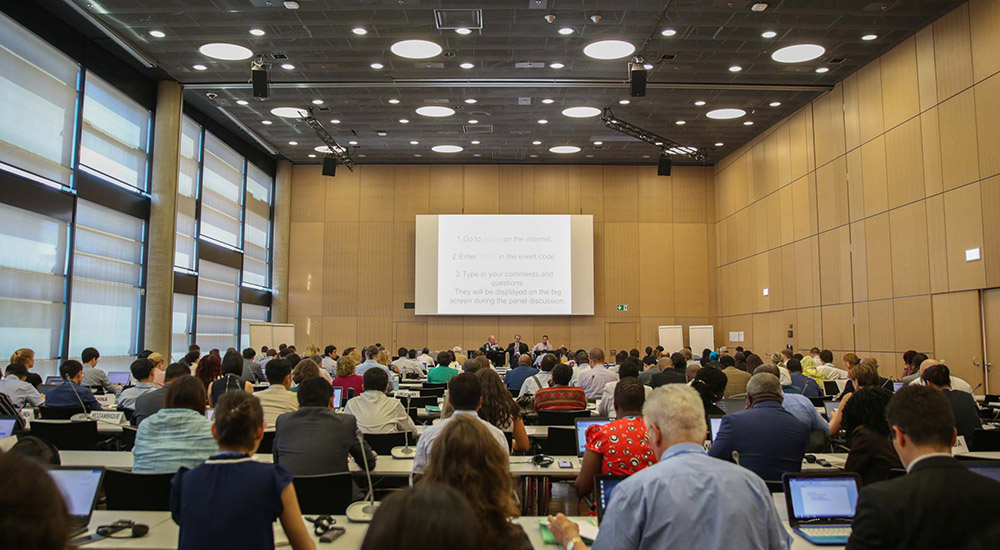
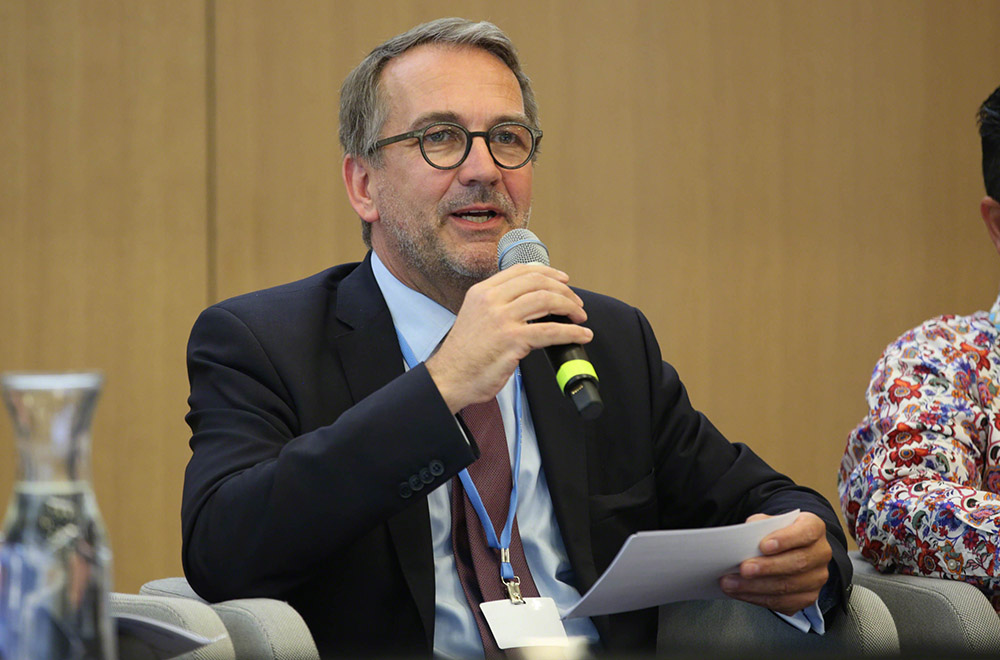
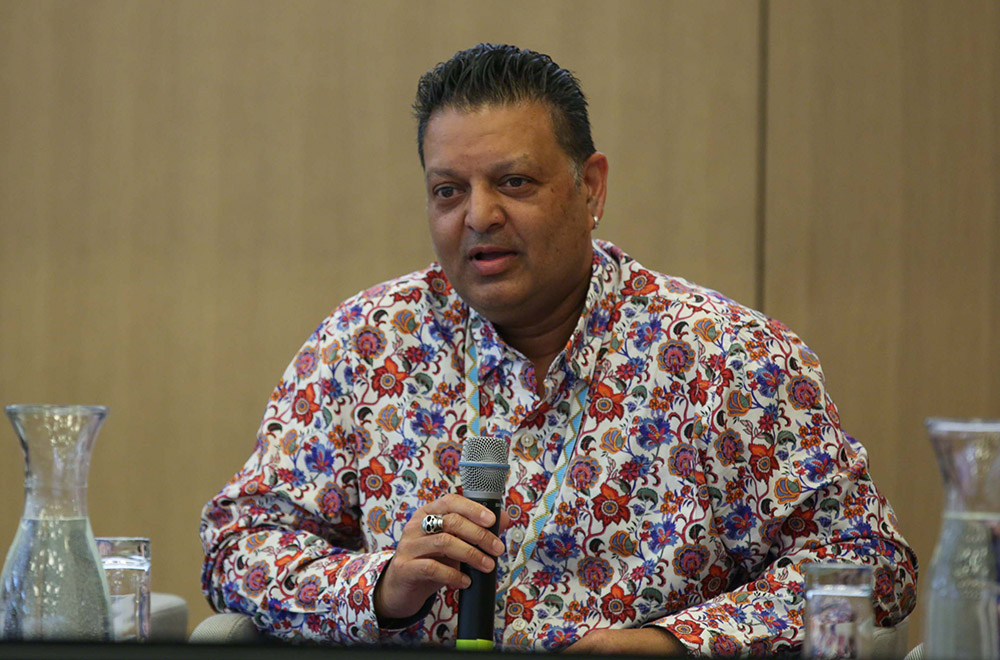
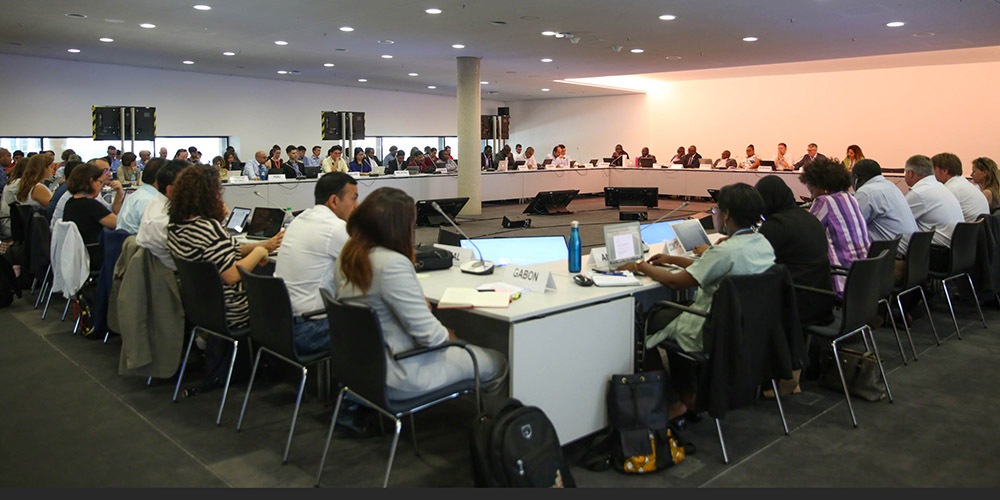
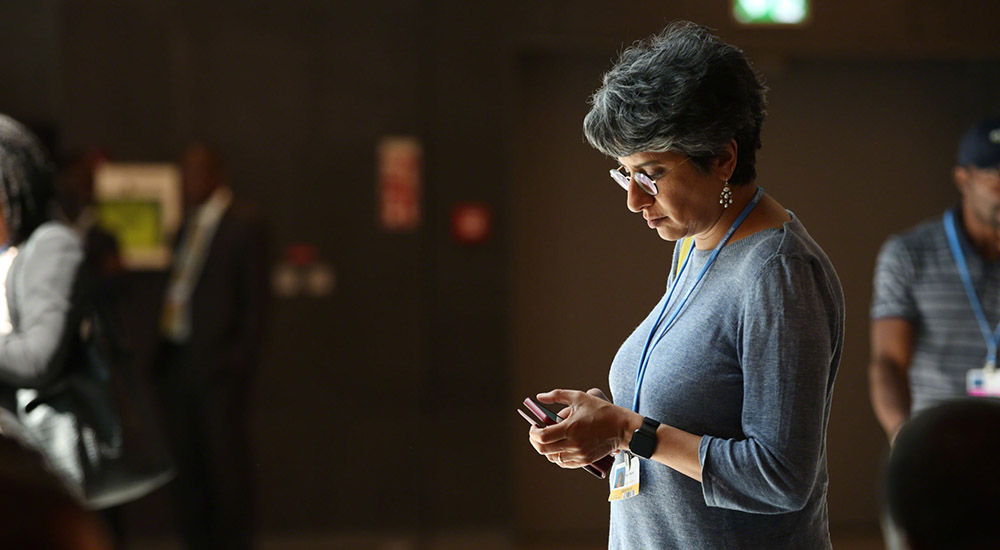
Highlights for Saturday, 22 June 2019
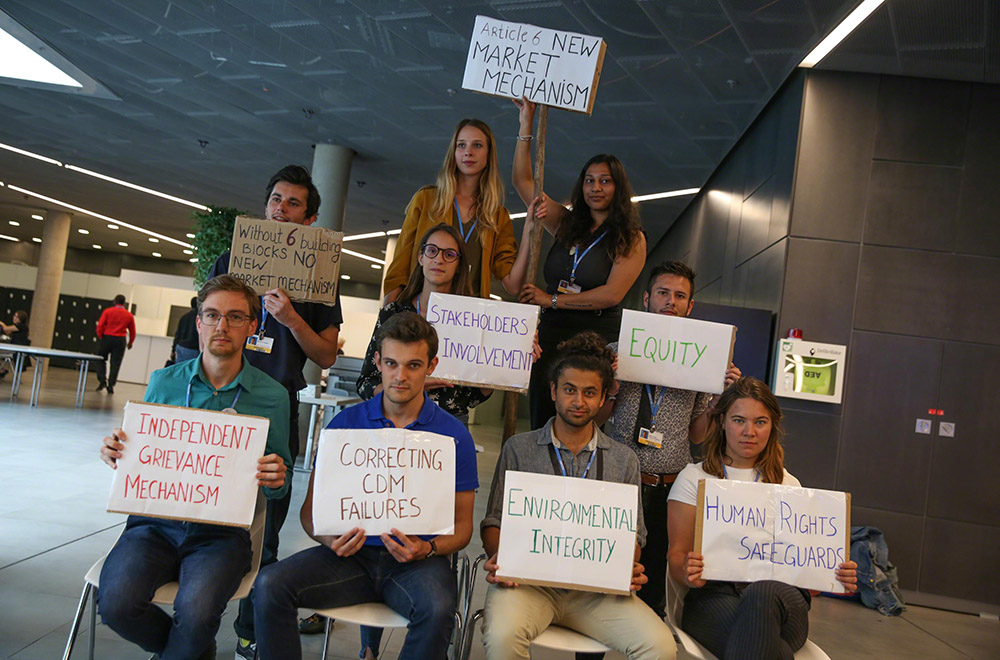
The Bonn Climate Change Conference continued on Saturday, wrapping up its first week. As draft decisions, conclusions, and other texts started to trickle throughout the meeting rooms, areas of agreement and disagreement crystallized.
On some highly-salient, and therefore sensitive, issues, agreement was elusive. Delegates could not agree to a procedural conclusions on common timeframes, (the length of time for countries’ nationally determined contributions (NDCs), or on conclusions related to research and systemic observation.
The depth of disagreement was clear in confrontational discussions regarding the membership of the Adaptation Fund Board, and the Intergovernmental Panel on Climate Change (IPCC) Special Report on 1.5°C of Global Warming. One delegate intimated that the “gentleperson’s agreement” on how to consider the IPCC report “was broken.”
Parties consideration of the Lima Work Programme on Gender and the Nairobi Work Programme on impacts, vulnerability, and adaptation concluded, marking some of the first finalized texts of the conference. With four negotiation days left, several delegates wondered about the extent of progress made thus far, and what they would be sending forward to the next meeting in Chile.
+ Visit the web coverage for Saturday, 22 June 2019
+ Read the ENB report for Saturday, 22 June 2019, in English (HTML or PDF format), or in Japanese (HTML or PDF format).
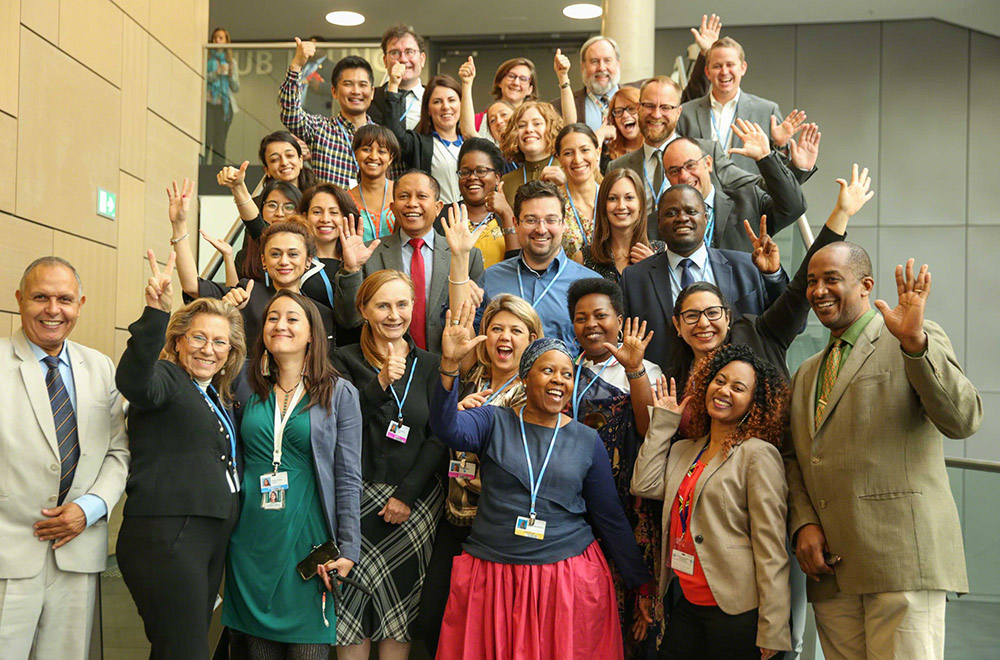
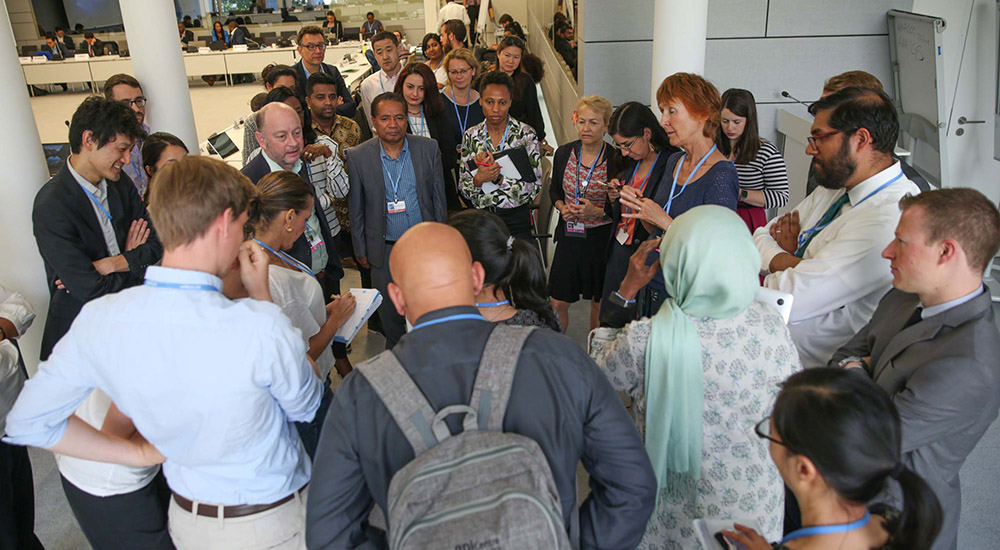
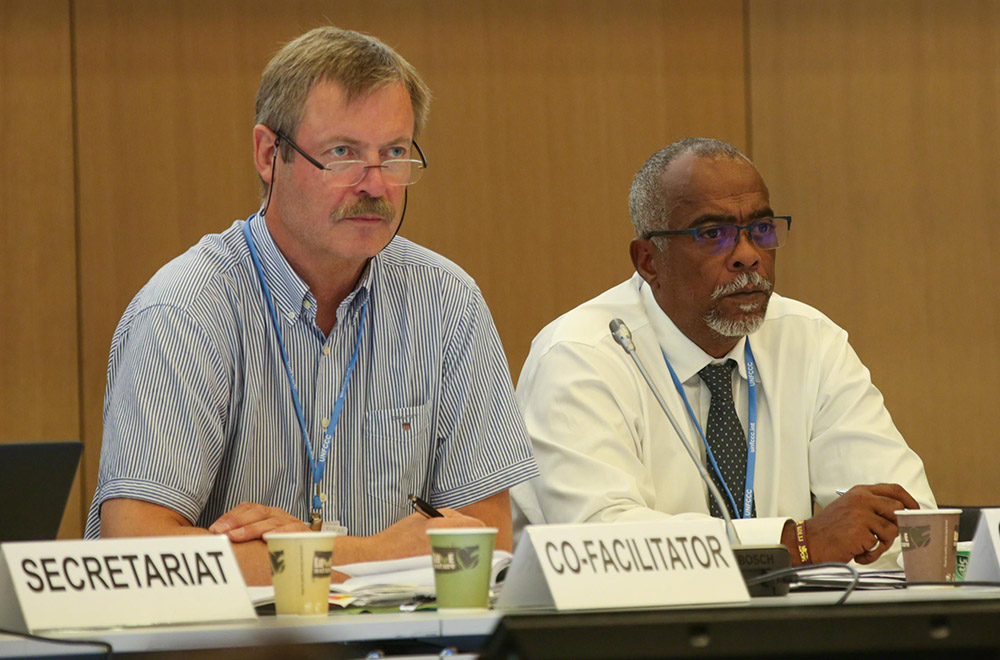
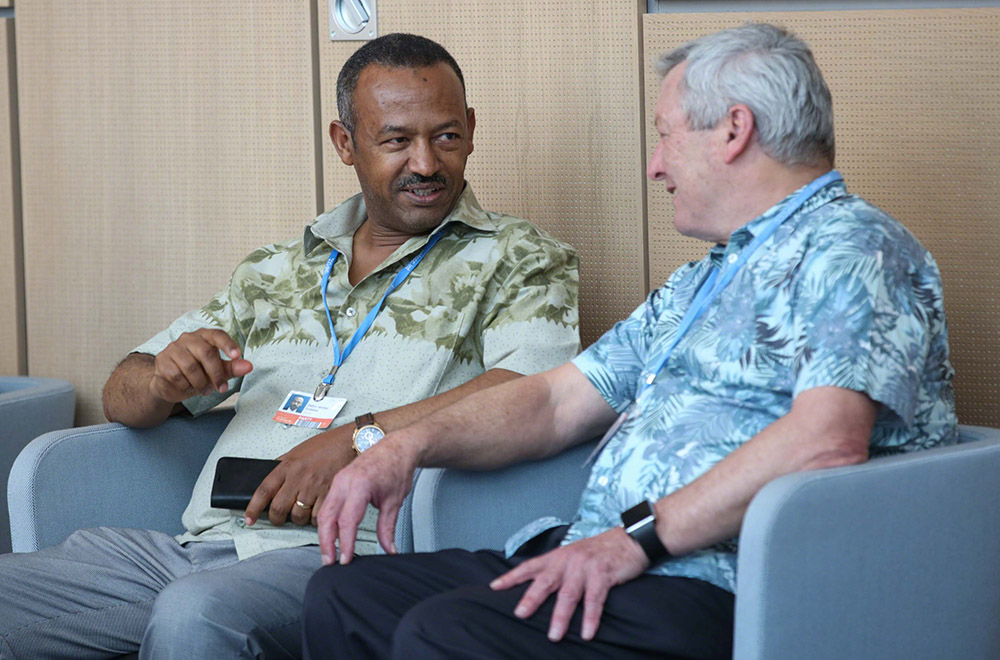

Highlights for Friday, 21 June 2019
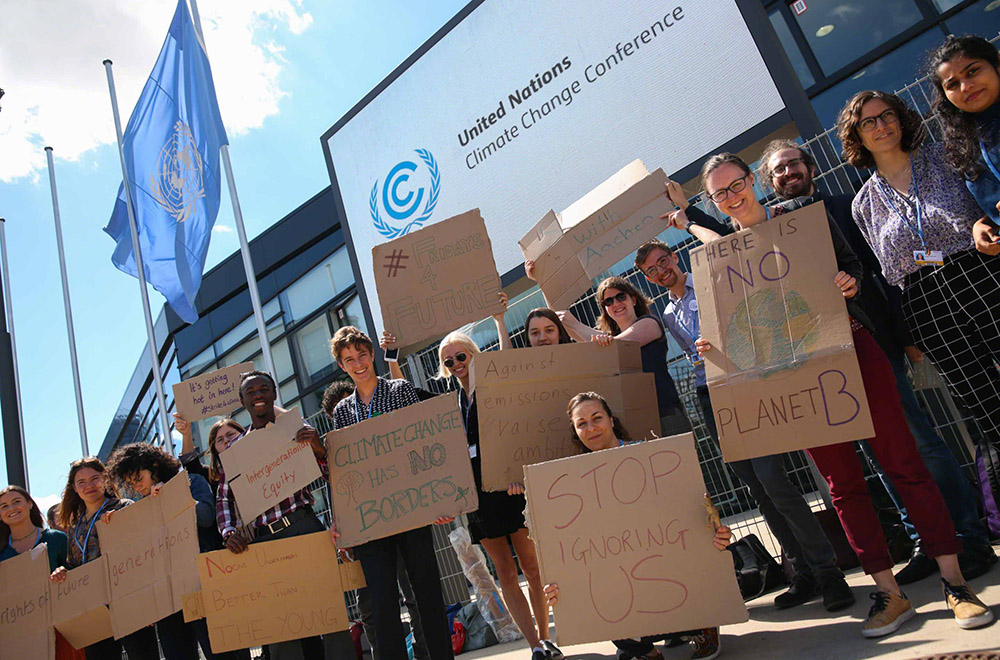
The Bonn Climate Change Conference continued on Friday. Discussions were technical, with countries negotiating a range of issues that are crucial for implementing the Paris Agreement.
A common theme in these detailed discussions was data: what data to gather, how to present it, what data is fair to expect from developing countries. Countries discussed how to report their projected future greenhouse gas (GHG) emissions, which can help the world understand the looming climate challenge, and the impact that today’s policies can have in the future. These projections can be difficult for developing countries to report, in part because they are based on historical emissions for which there may be little data. Conversely, as reported in discussions on the GHG data interface, a growing number of developing countries are reporting their emissions data.
The Intergovernmental Panel on Climate Change (IPCC), the global body that, among other functions, outlines how countries can report their data, presented the refinements to its GHG inventory guidelines in a special event. The guidelines will be used by parties to report their GHG emissions and removals under the Paris Agreement.
Also speaking in numbers, the UNFCCC Executive Secretary reminded us that “in today’s world, facts matter.” For her, four numbers mattered:
- 1.5°C: A key goal of the Paris Agreement to limit global temperature rise;
- 2050: When countries are to achieve carbon neutrality;
- 2030: When countries must limit global emissions by 45%; and
- 2020: When new or revised nationally determined contributions (NDCs) are due.
Others also spoke of a climate emergency outside the venue - young people from 16 countries were demonstrating in nearby Aachen and more demonstrators gathered in support nearer the negotiations. For some, this was a sharp contrast between those preparing civil disobedience out of a sense of urgency and what many saw as an increase in technical negotiation delays.
+ Visit the web coverage for Friday, 21 June 2019
+ Read the ENB report for Friday, 21 June 2019, in English (HTML or PDF format), or in Japanese (HTML or PDF format).
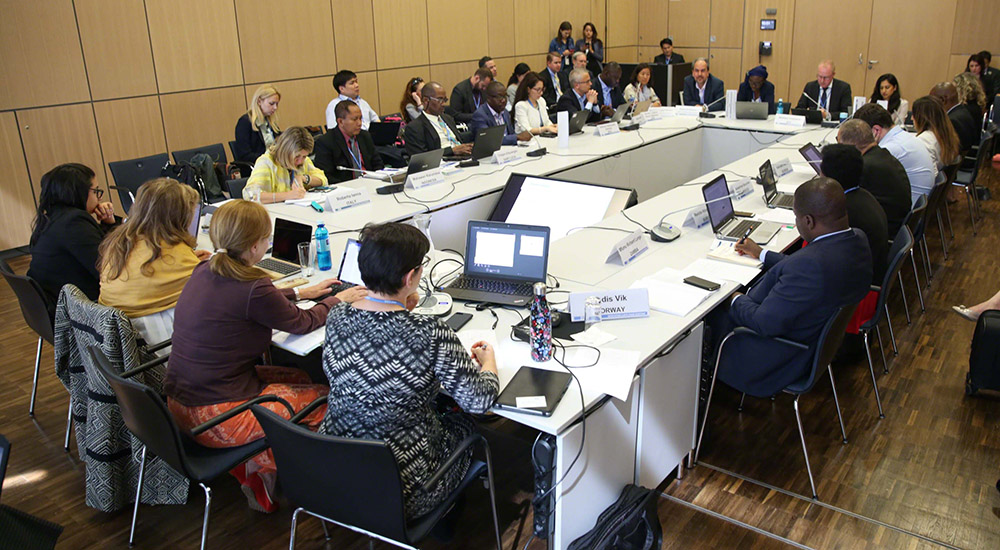
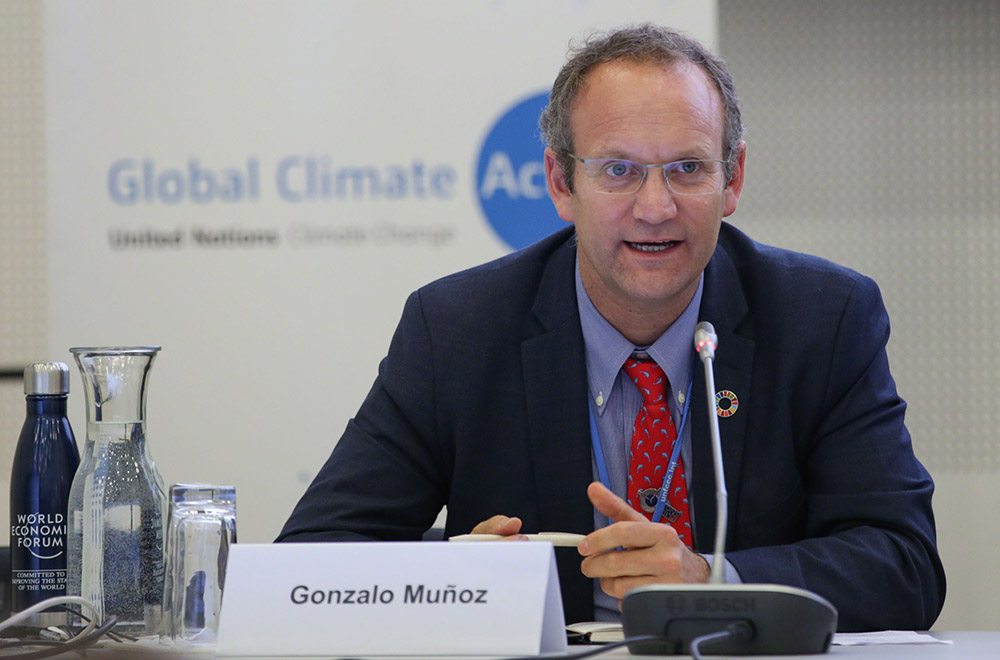
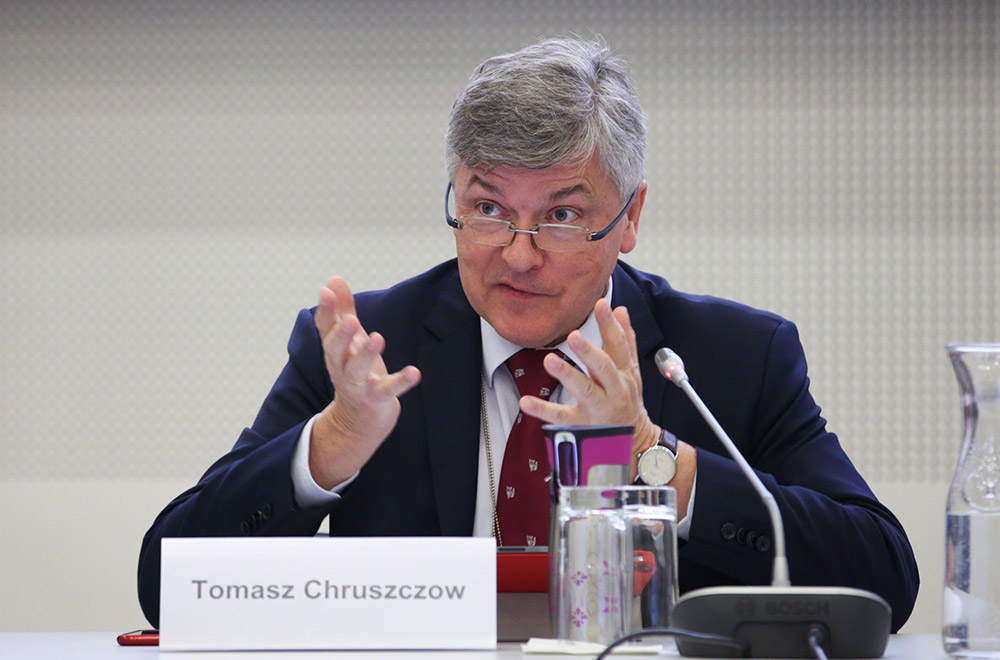
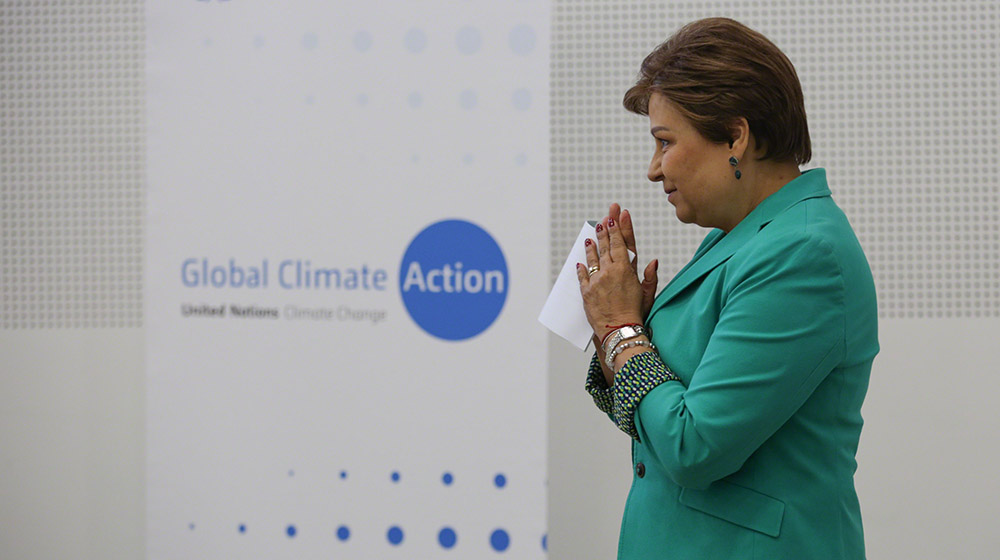
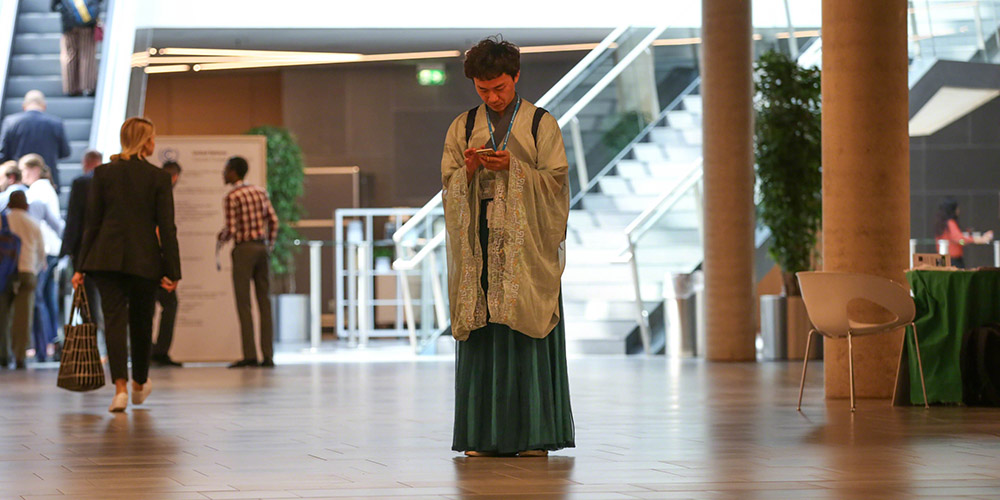
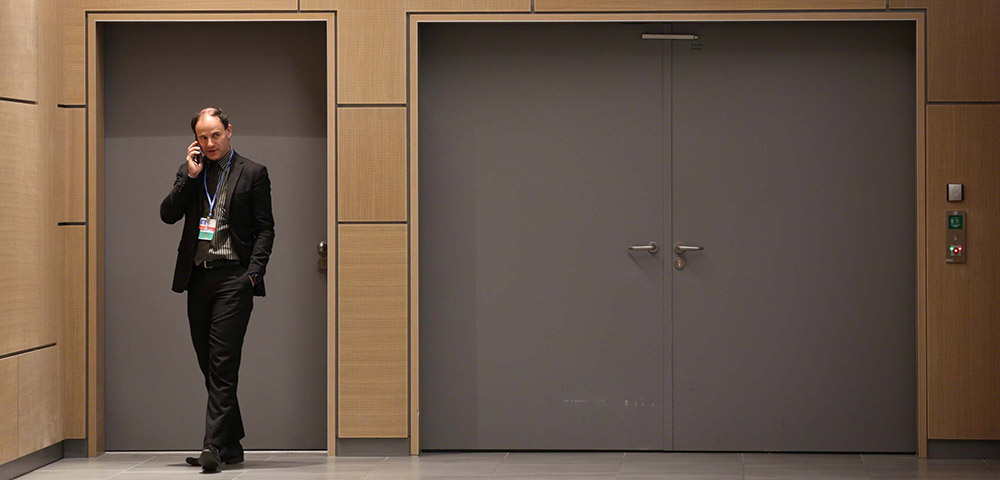
Highlights for Thursday, 20 June 2019
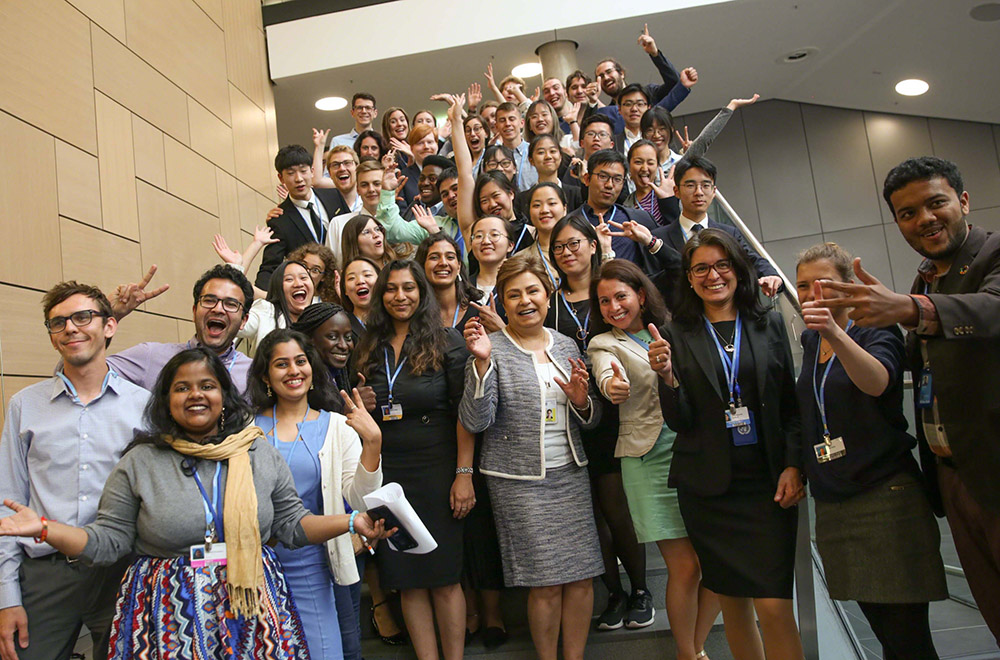
On Thursday, the Bonn Climate Change Conference continued, carefully working in negotiating rooms while also thinking more broadly in various thematic meetings and mandated events.
The need for science-based action for transformational change echoed more strongly than ever as Martin Frick, UNFCCC Secretariat, opened the Technical Expert Meeting by praising researchers and knowledge holders, reminding participants that “We need to speak about a climate emergency, not just climate change anymore.” In the research dialogue, experts stressed solutions were available, but under used, to transform the energy sector and build resilience. A common theme was the need to translate and transmit science and social science to policy makers. In other fora, delegates stressed the importance of scientific assessments in informing the periodic review of the Long-term Global Goal and the review of the Warsaw International Mechanism on Loss and Damage associated with climate change impacts.
Much of the negotiations continued the focus on Article 6 (markets and non-market approaches) and how countries will report through the Paris Agreement’s enhanced transparency framework. The tasks on these issues are very different. For Article 6, delegates are working to create three new institutions, for internationally transferrable mitigation outcomes (ITMOs), a market mechanism, and non-market approaches.
For many of the other issues discussed, parties are trying to find ways to make existing systems fit for purpose under the Paris Agreement. For reporting formats, this means reviewing existing forms and templates, and considering how to make them appropriate for all countries to use. Many are currently designed to be used either by developed or developing countries. Countries are trying to work out how to make sure developed countries continue to provide the same, or more, information, while allowing developing countries the flexibilities they need given how difficult it can be to gather and report technical information.
Building national capacities to implement the Paris Agreement was the focus of the Durban Forum for Capacity-building. Participants brainstormed on the role of academia and research institutes, and how to coordinate national and international stakeholders. Of interest to many was best practices for showcasing, and assessing, the effectiveness of capacity-building activities.
+ Visit the web coverage for Thursday, 20 June 2019
+ Read the ENB report for Thursday, 20 June 2019, in English (HTML or PDF format), or in Japanese (HTML or PDF format).
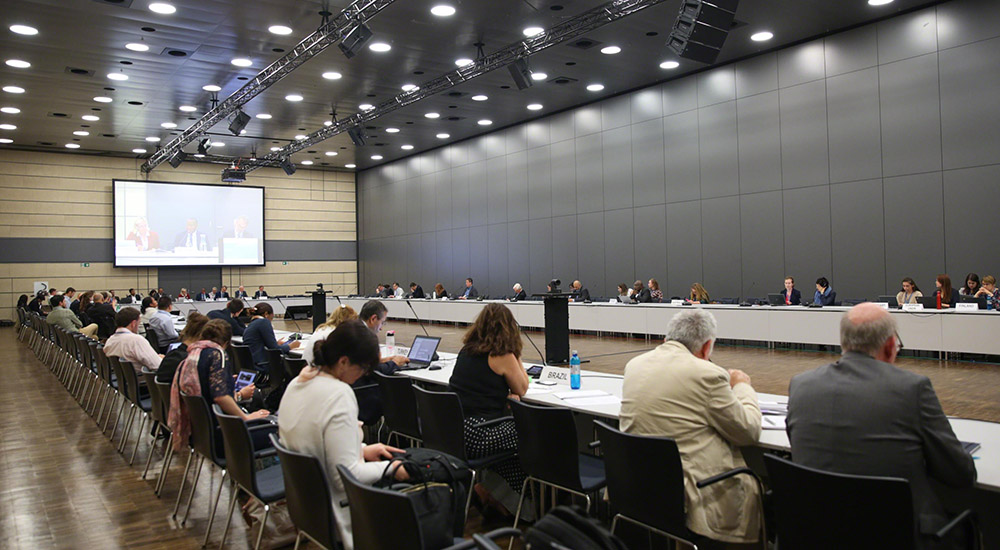
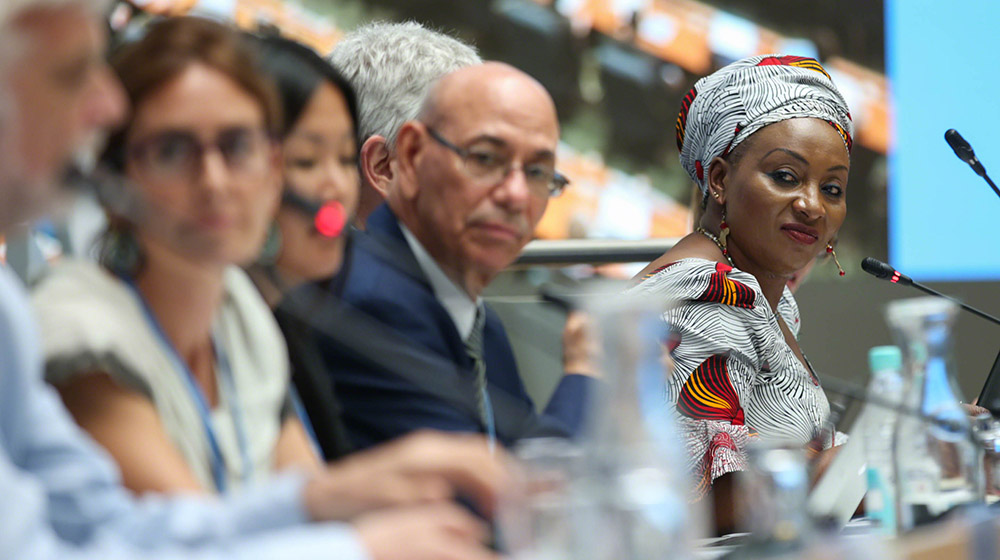
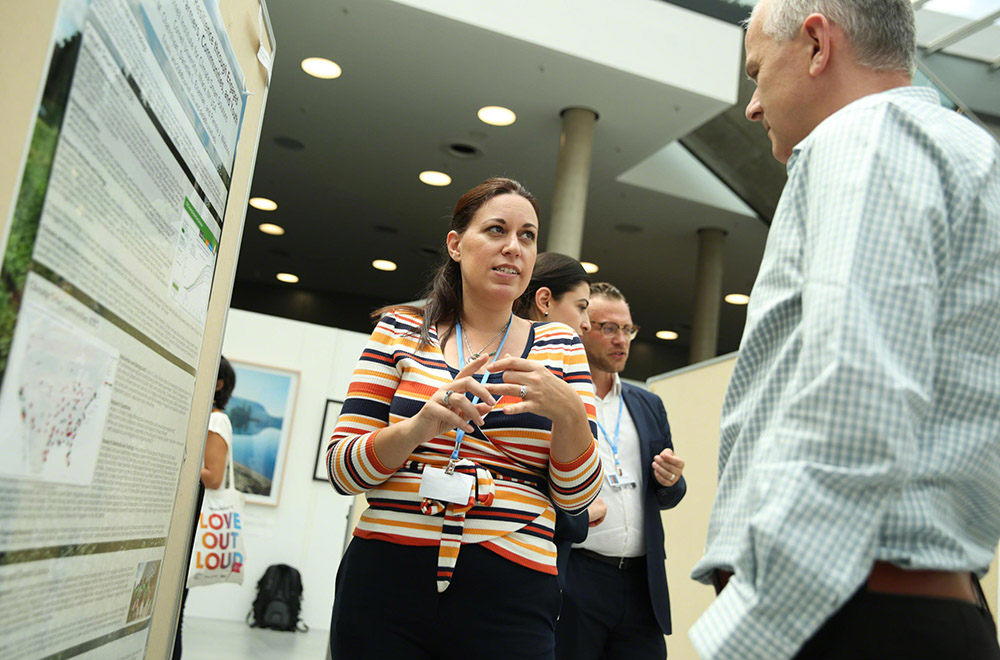
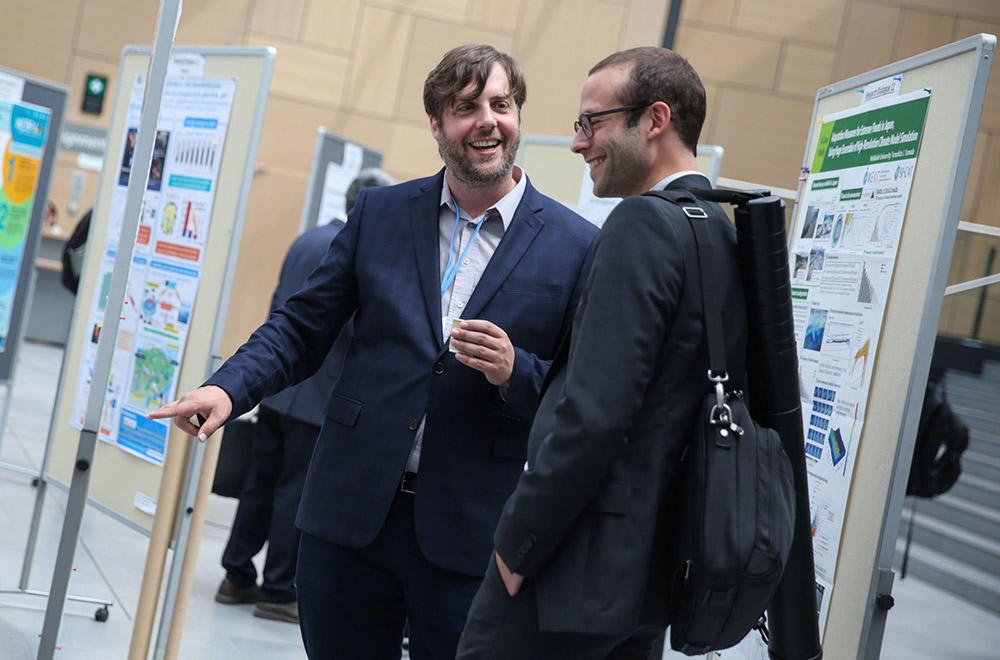
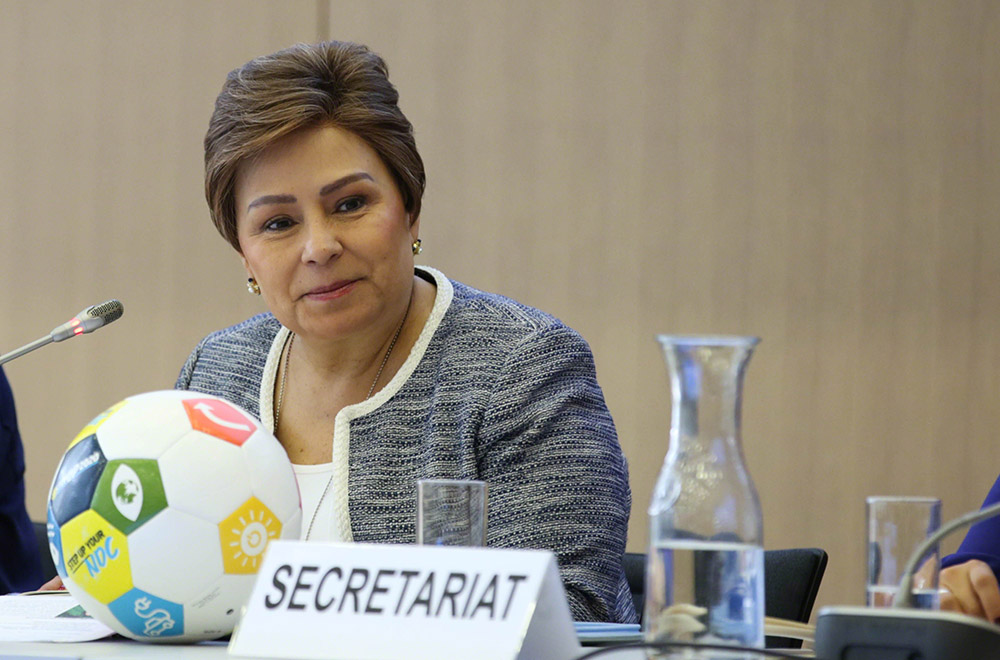
Highlights for Wednesday, 19 June 2019

The Bonn Climate Change Conference continued Wednesday, with delegates engaged in marathon sessions for transparency arrangements under the Paris Agreement, and Article 6 (market and non-market approaches). Some delegates remarked on the positive spirit in the transparency-related discussions as the Co-Facilitators of Article 6 tried to inject energy to rally parties for an intensive period of discussions.
Parties had a chance to review progress made on addressing climate change in the facilitative sharing of views. At this session, several developing countries presented their achievements to date in the form of biennial update reports, which catalogue information on their emissions, their needs for support to act on climate change, and the support they have received in those efforts.
Delegates also looked to the next steps as eyes turned towards arrangements for subsequent meetings. During the logistics briefing for the conference, Chile, the incoming Presidency, gave delegates their first glimpse into the venue under construction in the Ciudad Parque Bicentenario. For the 2020 meeting that marks the beginning of the Paris Agreement, some were surprised to hear the Presidency had not been confirmed, particularly after the UK announced its plans to host the meeting.
Other discussions looked outward from the UN process to discuss how to meaningfully engage a range of stakeholders important to advancing climate action. The morning’s Koronivia workshop on soil recognized that sustainable soil health may well require the transformative work of embracing and implementing existing farmer knowledge. Participants also considered the essential contributions of local communities and indigenous peoples. “Only we indigenous peoples have this knowledge,” one participant reminded the room; “do not make the mistake of jumping over it. You must bring us in.”
+ Visit the web coverage for Wednesday, 19 June 2019
+ Read the ENB report for Wednesday, 19 June 2019, in English (HTML or PDF format), or in Japanese (HTML or PDF format).
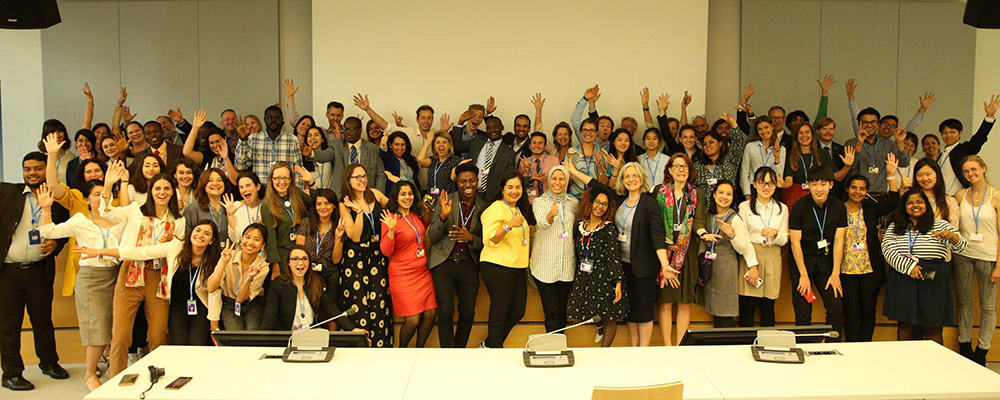
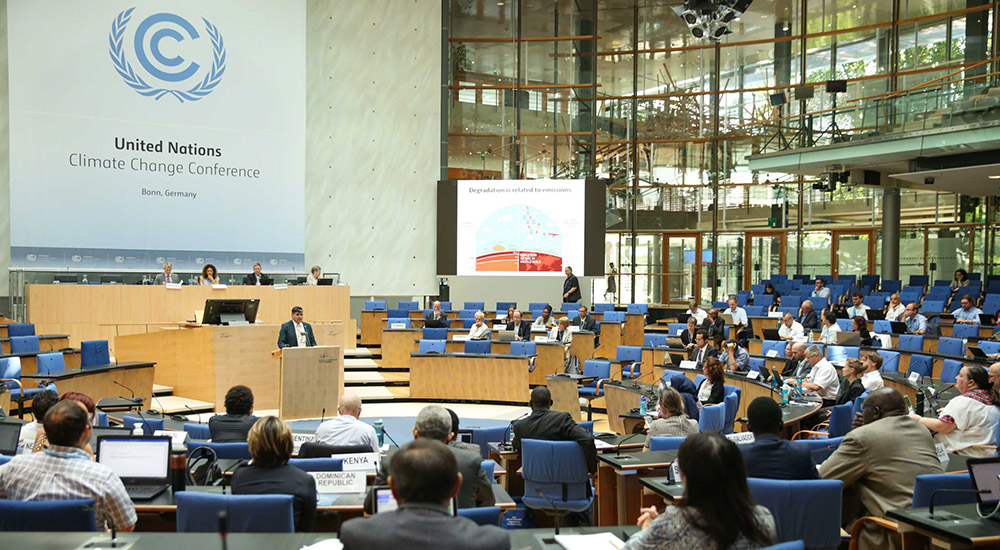
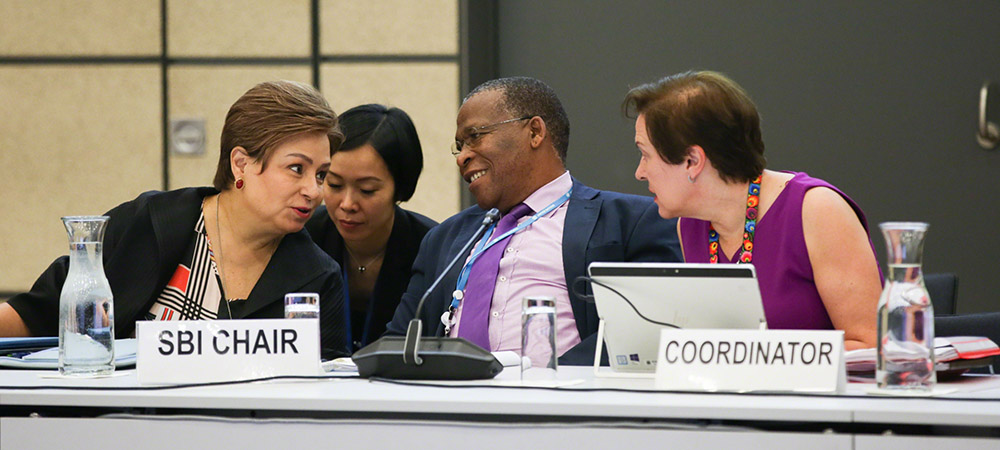
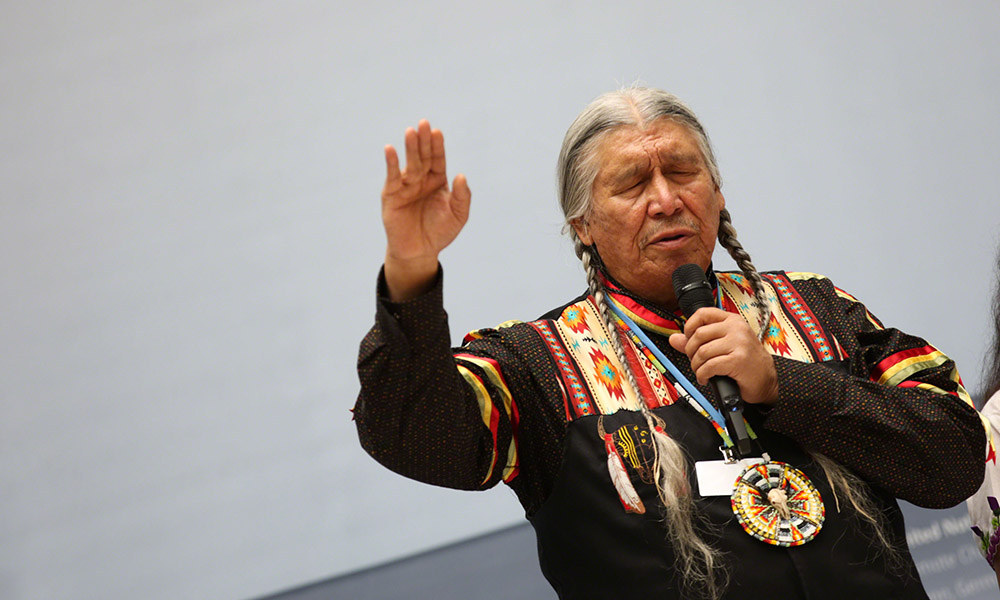
Highlights for Tuesday, 18 June 2019

The Bonn Climate Change Conference continued on Tuesday, with delegates negotiating discrete issues in smaller settings. On some technical issues, initial exchanges proved that positions continued to be far apart.
Negotiators working on Article 6 (market and non-market approaches) under the Paris Agreement struggled to begin substantive work. After a morning of procedural discussions, the Chair of the Subsidiary Body for Scientific and Technological Advice (SBSTA) asked the heads of delegation to meet to identify a way forward. That meeting continued into the evening, as delegates tried to reconcile how to discuss Article 6 issues in the transparency discussions, particularly on how countries should report their use of internationally transferred mitigation outcomes (ITMOs), without pre-judging the Article 6 negotiation outcome.
Divisions remained in discussions on the Special Report of the Intergovernmental Panel on Climate Change (IPCC) on 1.5°C of Global Warming. Some called for the welcoming of the IPCC report and others called for more substantive discussions on its content. A few considered the matter closed. Discussions on this and many other issues will continue as delegations work toward finalizing the last rules needed to make the Paris Agreement fully ready for implementation in 2020.
Beyond navigating through difficult technical issues, delegates also had to "mind the GAP." Over three days, participants gathered together to share their experiences and identify the various impacts the Lima Work Programme on Gender and its Gender Action Plan (GAP) have had in their countries. Today, they asked what’s missing and what’s needed to move forward work on gender in the climate change process.
+ Visit the web coverage for Tuesday, 18 June 2019
+ Read the ENB report for Tuesday, 18 June 2019, in English (HTML or PDF format), or in Japanese (HTML or PDF format).
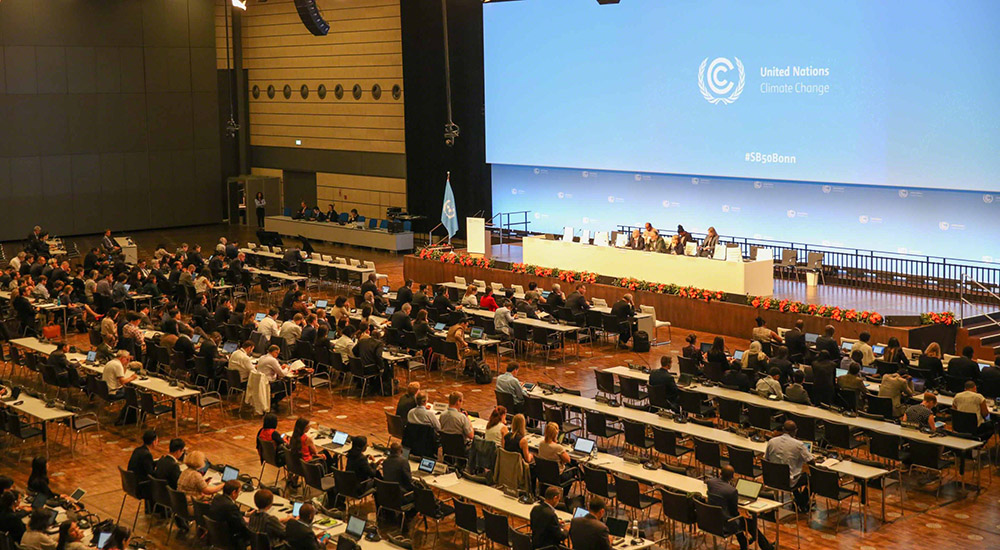

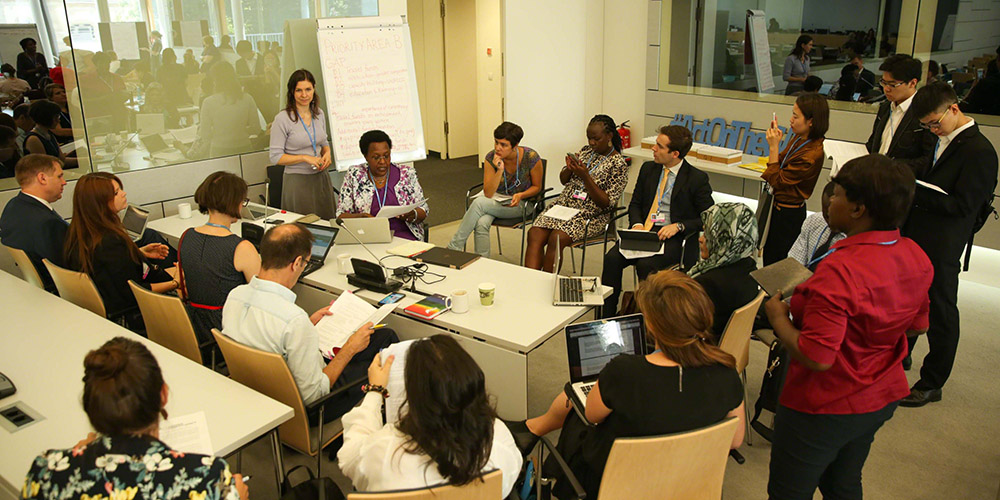
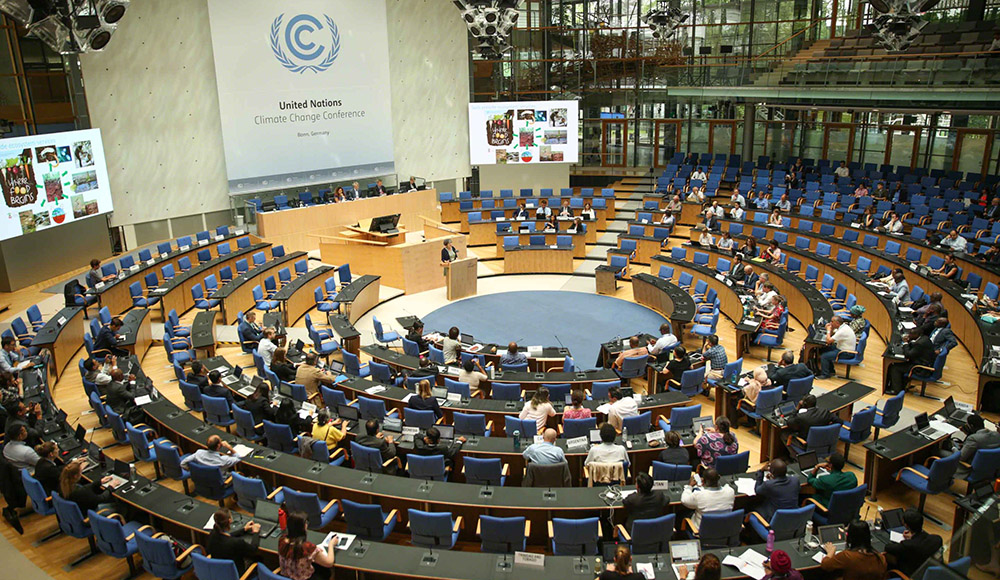
Highlights for Monday, 17 June 2019

For the first time in 14 years, delegates gathered for a smaller session in Bonn with only two bodies convening. The fiftieth meeting of the Subsidiary Body for Implementation (SBI 50) and the Subsidiary Body for Scientific and Technological Advice (SBSTA 50) launched their work on all agenda items.
Outlining expectations for the meeting, many parties pressed to keep the momentum generated in December 2018 when they adopted the Katowice Climate Package, the so-called “rulebook” supporting the Paris Agreement. As the Intergovernmental Panel on Climate Change (IPCC), other international organizations, and developing countries continue to draw attention to the impacts of climate change on the environment, people, and livelihoods, several parties urged more ambition in pledges to the Paris Agreement; many developing countries called for greater financial resources. Chile, the host of the next Conference of the Parties (COP), declared ambition a central theme of the upcoming meeting.
In the second workshop of the Koronivia Joint Work on Agriculture, participants grappled with three questions: how do we measure and evaluate adaptation practices in agriculture? What are the co-benefits of adapting agriculture systems to climate change? and how can we share knowledge and practices to ensure resilience in global food security? The workshop heard from the Food and Agriculture Organization (FAO), the Adaptation Committee, the Least Developed Countries (LDC) Expert Group, and the World Bank on recent practices in monitoring, evaluation, and adaptation planning; and shared views and best practices on adaptation in the agricultural sector.
As delegates finished their first day of work, several were pleased that the SBSTA avoided a delay in adopting its agenda through informal discussions regarding the item on the IPCC Special Report on 1.5°C of Global Warming. In December, the COP asked the SBSTA to consider the Special Report “with a view to strengthening the scientific knowledge on the 1.5°C goal.” Parties agreed to hold this discussion without pre-judging any potential outcome. Some delegates warned that sensitivity around this issue would continue throughout the conference.
+ Visit the web coverage for Monday, 17 June 2019
+ Read the ENB report for Monday, 17 June 2019, in English (HTML or PDF format), or in Japanese (HTML or PDF format).
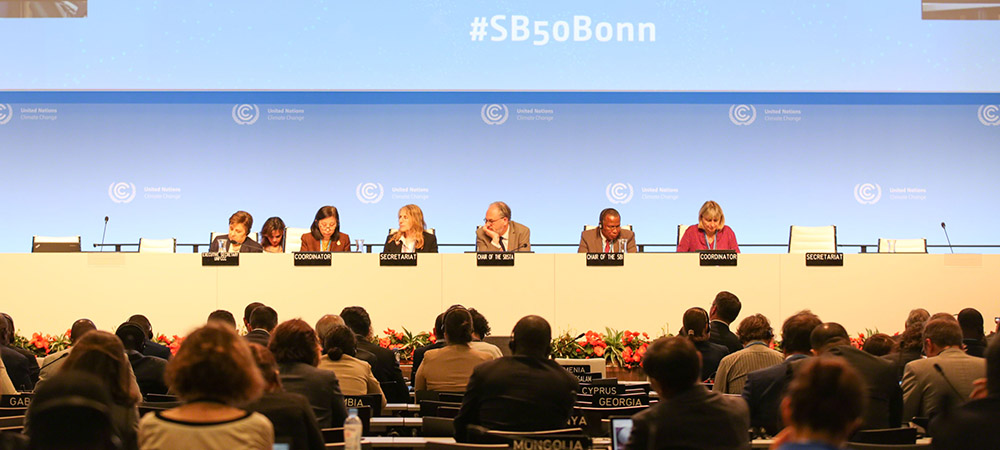
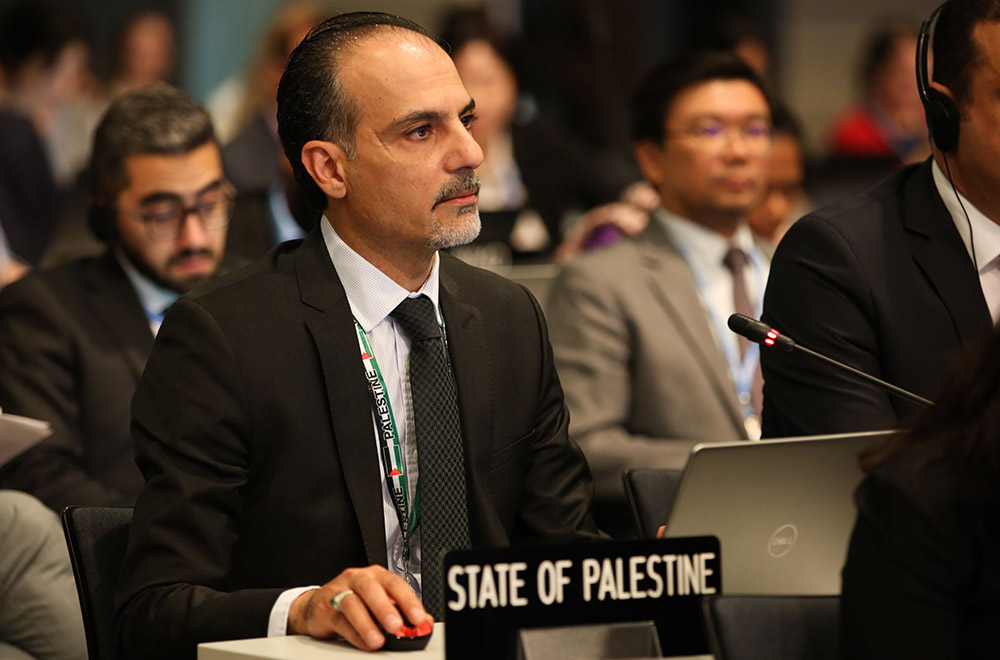
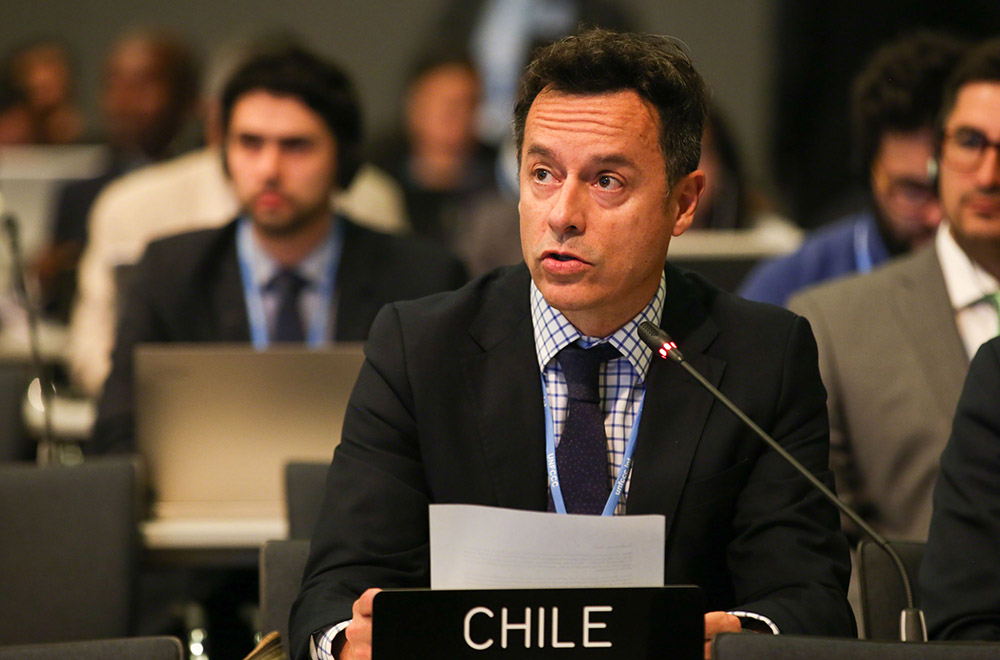
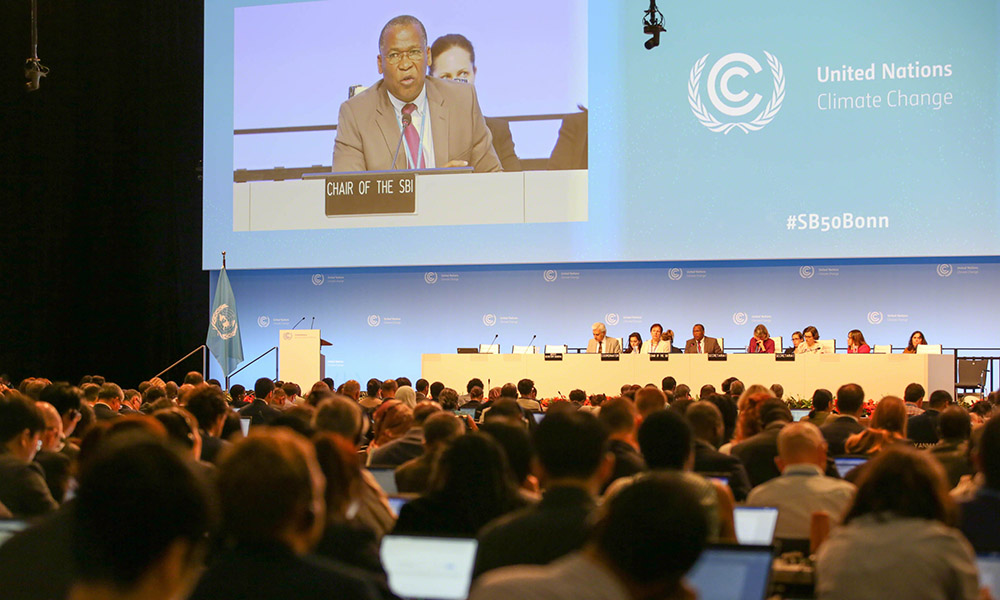
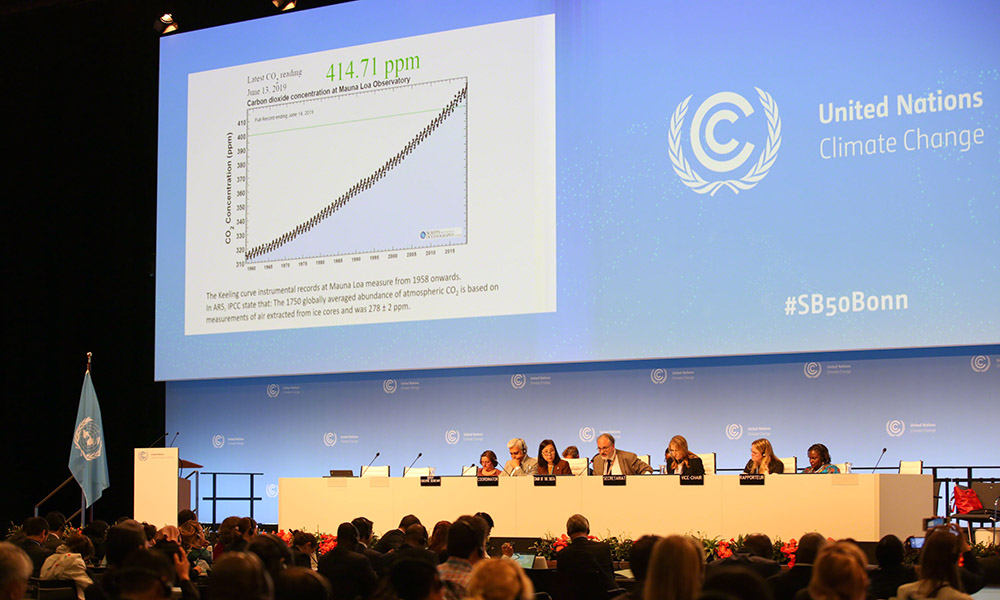
DOWNLOAD ENB REPORT
UNFCCC Resources
- Website for the Bonn Climate Change Conference - June 2019
- Overview Schedule for the Bonn Climate Change Conference - June 2019
- SBSTA 50 Website
- SBSTA 50 Provisional Agenda
- SBI 50 Website
- SBI 50 Provisional Agenda
IISD ENB/ENB+ Meeting Coverage
- IPCC-49, 8-12 May 2019, Kyoto, Japan
- Katowice Climate Change Conference - December 2018, 2-14 December 2018, Katowice, Poland
- IPCC-48, 1-6 October 2018, Incheon, Republic of Korea
- Bangkok Climate Change Conference - September 2018, 4-9 September 2018, UN Conference Centre (UNCC), Bangkok, Thailand
- Bonn Climate Change Conference - April/May 2018, 30 April - 10 May 2018, Bonn, Germany
- ENB Coverage of Climate Change Meetings
IISD Resources
- Subscription Page for IISD Reporting Services Peer-to-Peer Mailing Lists (including CLIMATE-L, SDG, OCEANS-L, BIODIVERSITY-L, and Regional Updates)
- SDG - A Mailing List for News on Sustainable Development Policy
- SDG Update Newsletter - A compilation of news, commentary and upcoming events published on the SDG Knowledge Hub
- SDG Knowledge Hub - An Online Resource Center for News and Commentary Regarding the Implementation of the United Nations’ 2030 Agenda for Sustainable Development, including all 17 Sustainable Development Goals (SDGs)
- Linkages Update - International Environment and Sustainable Development News